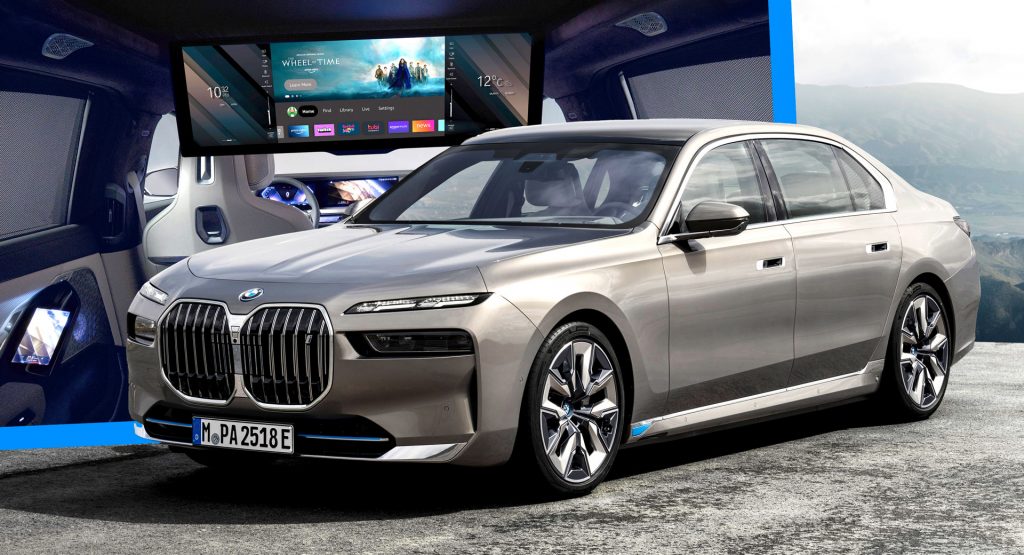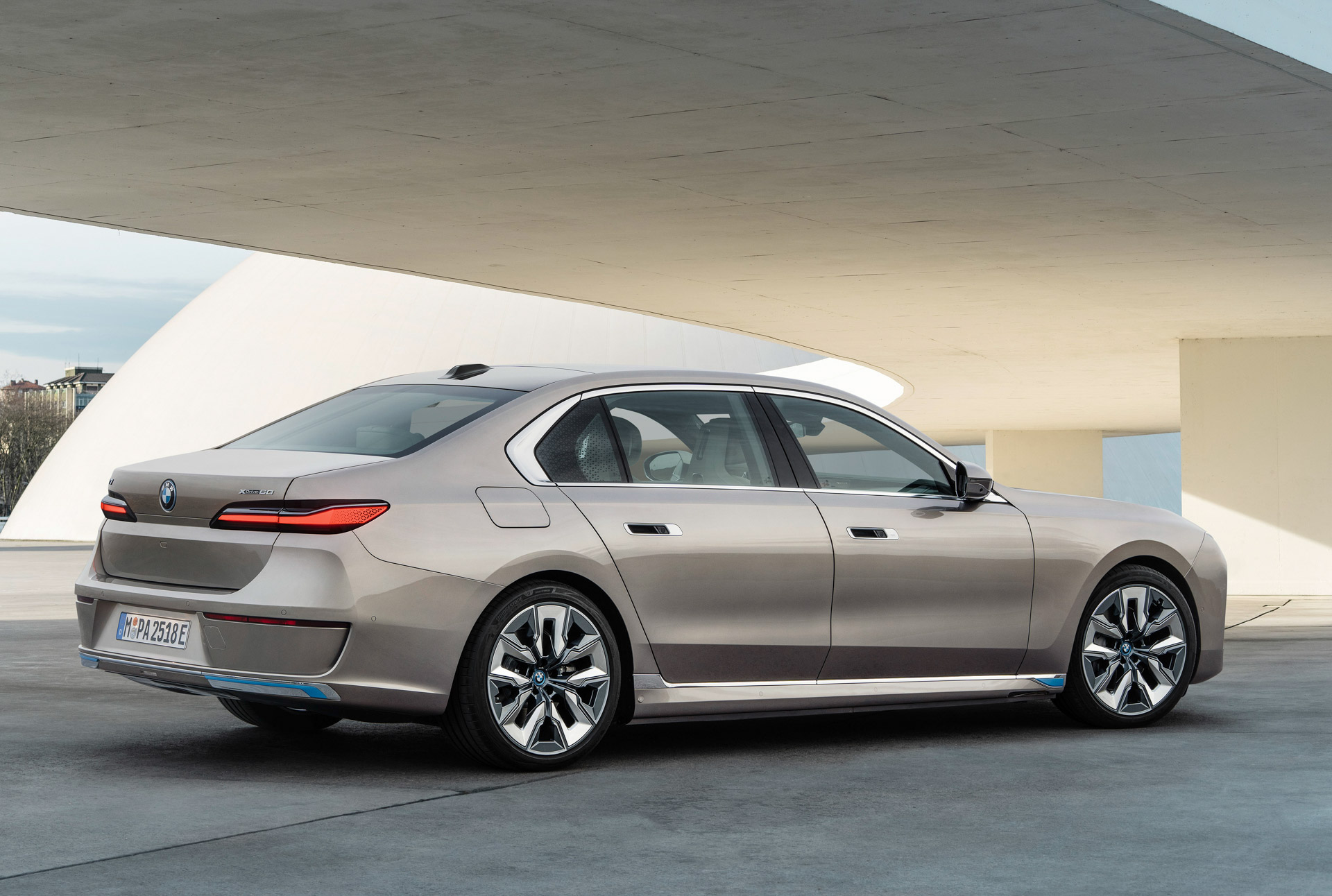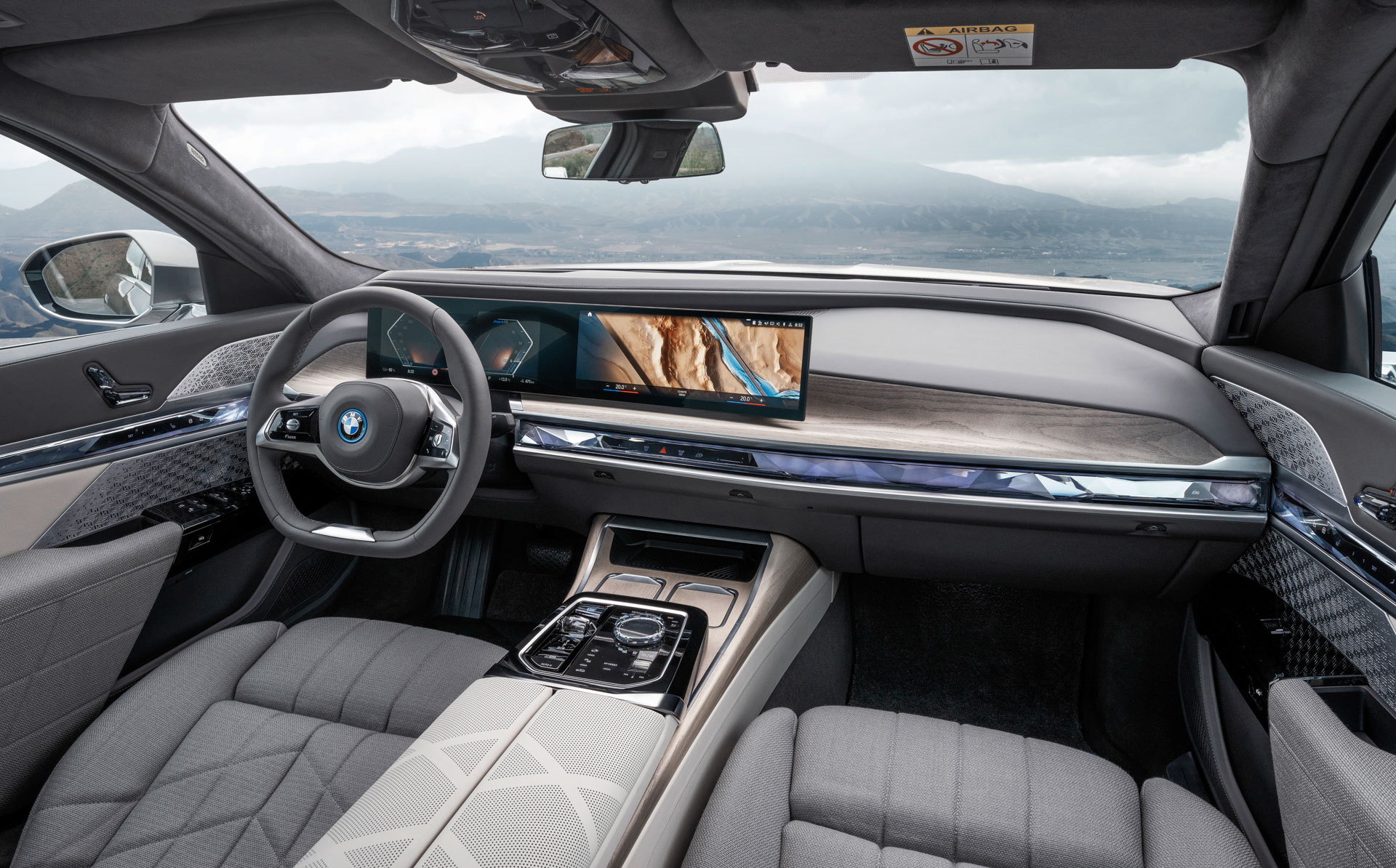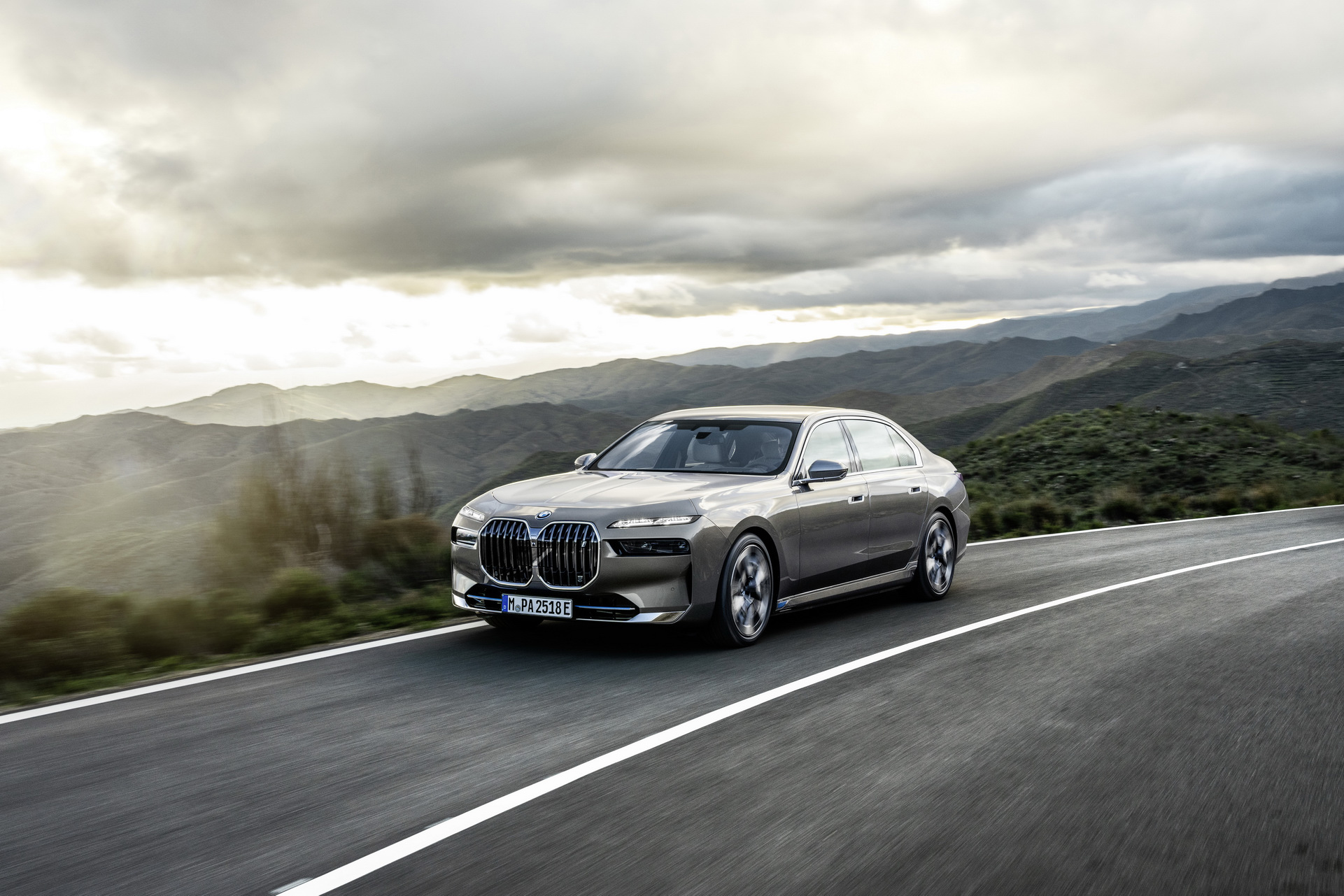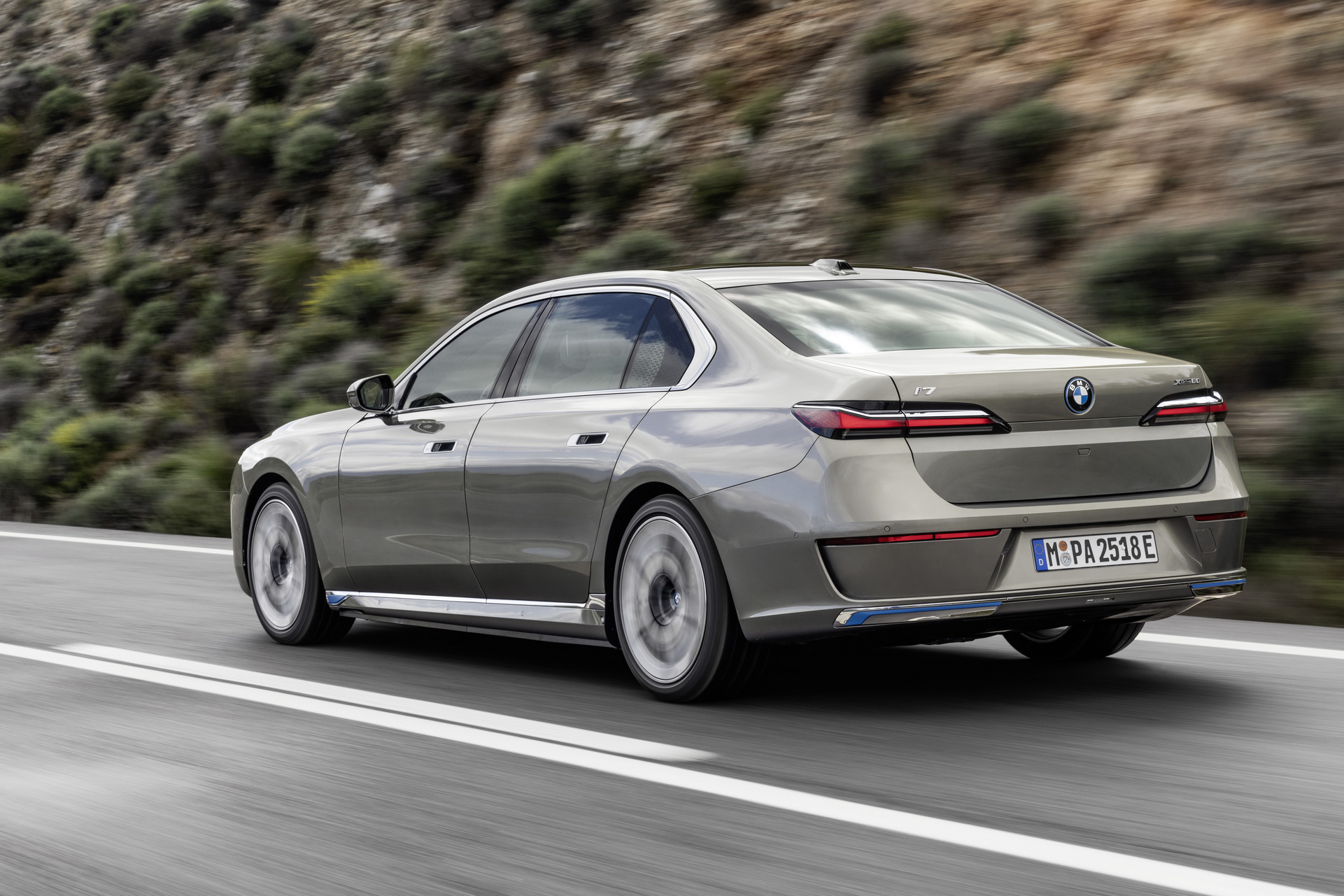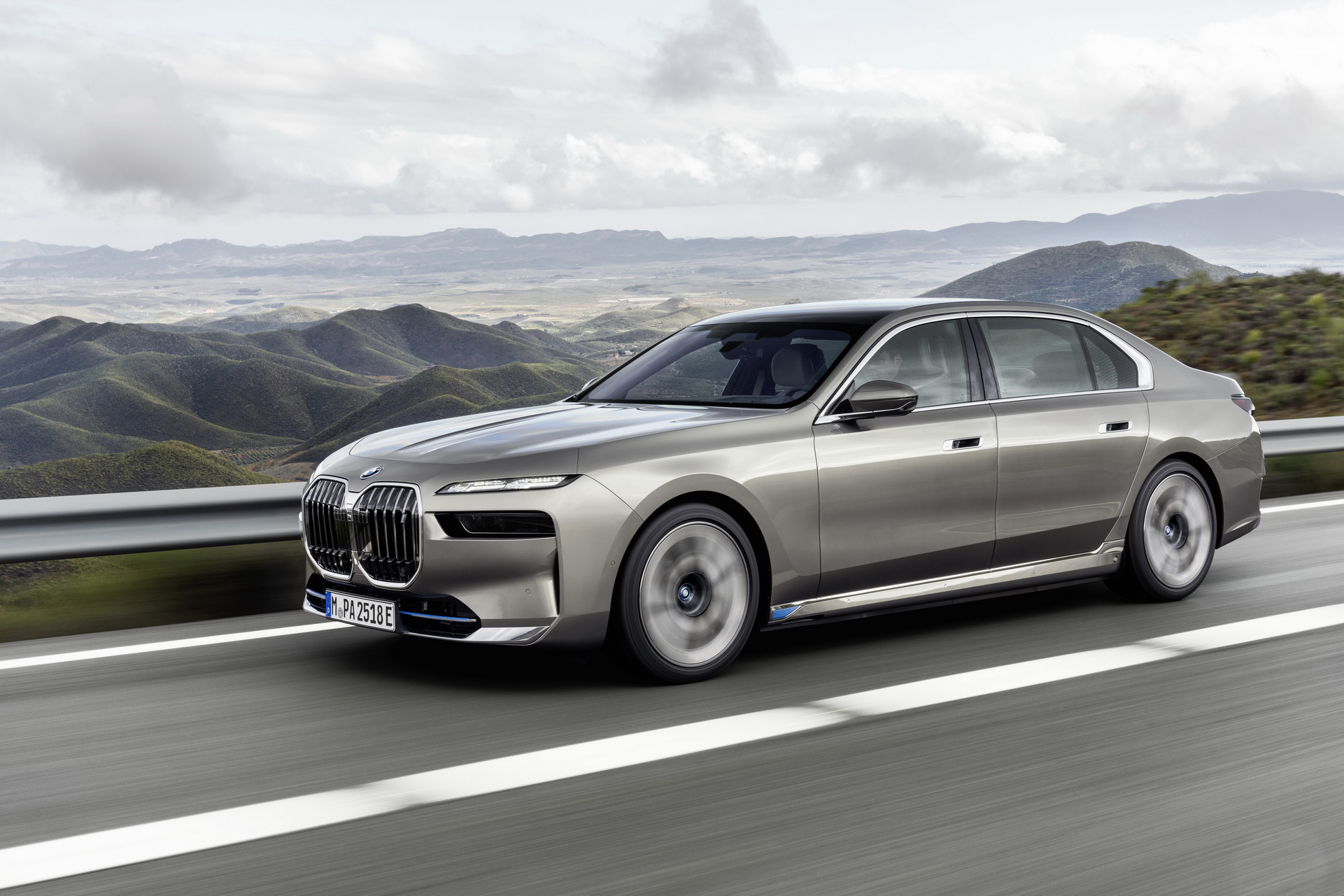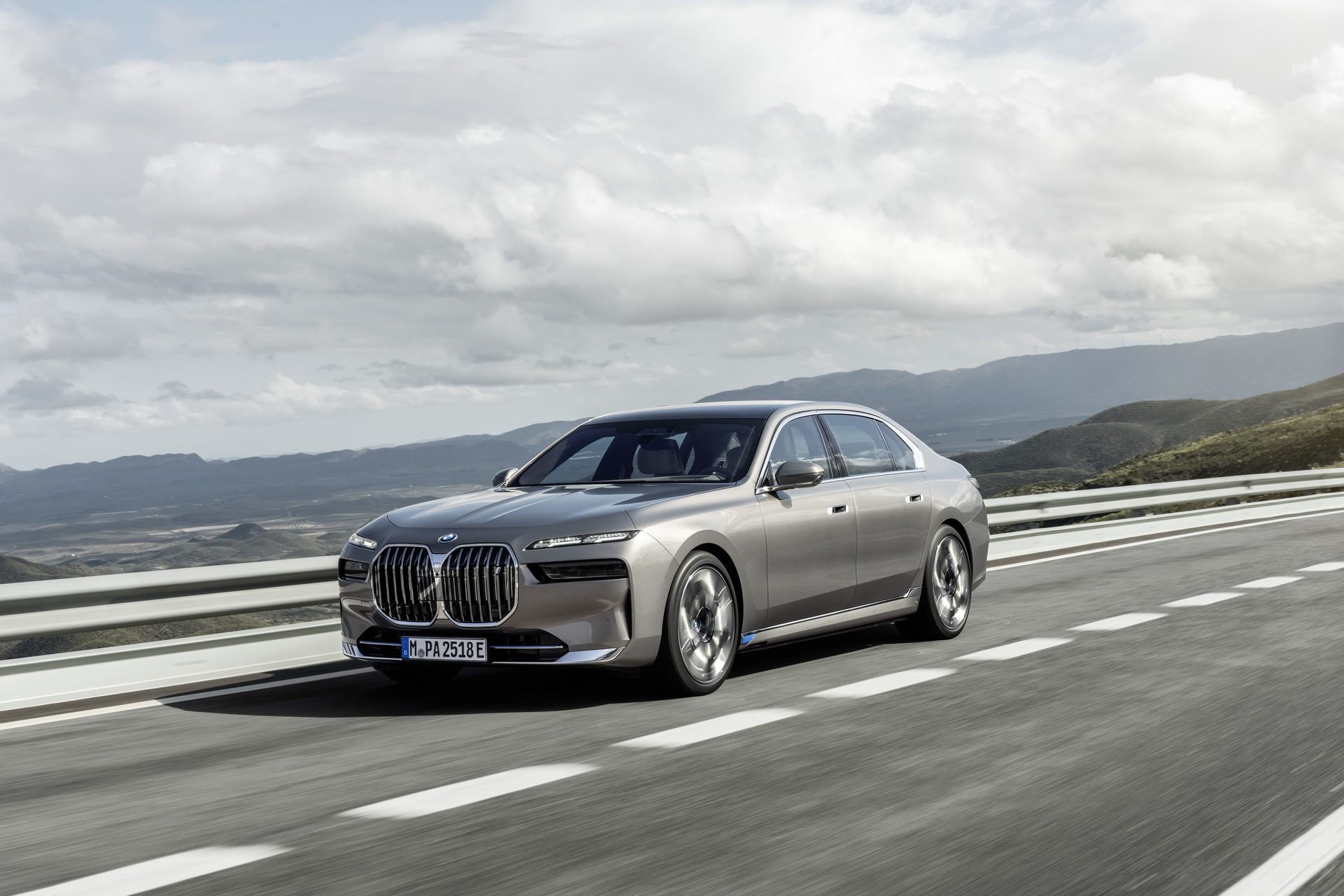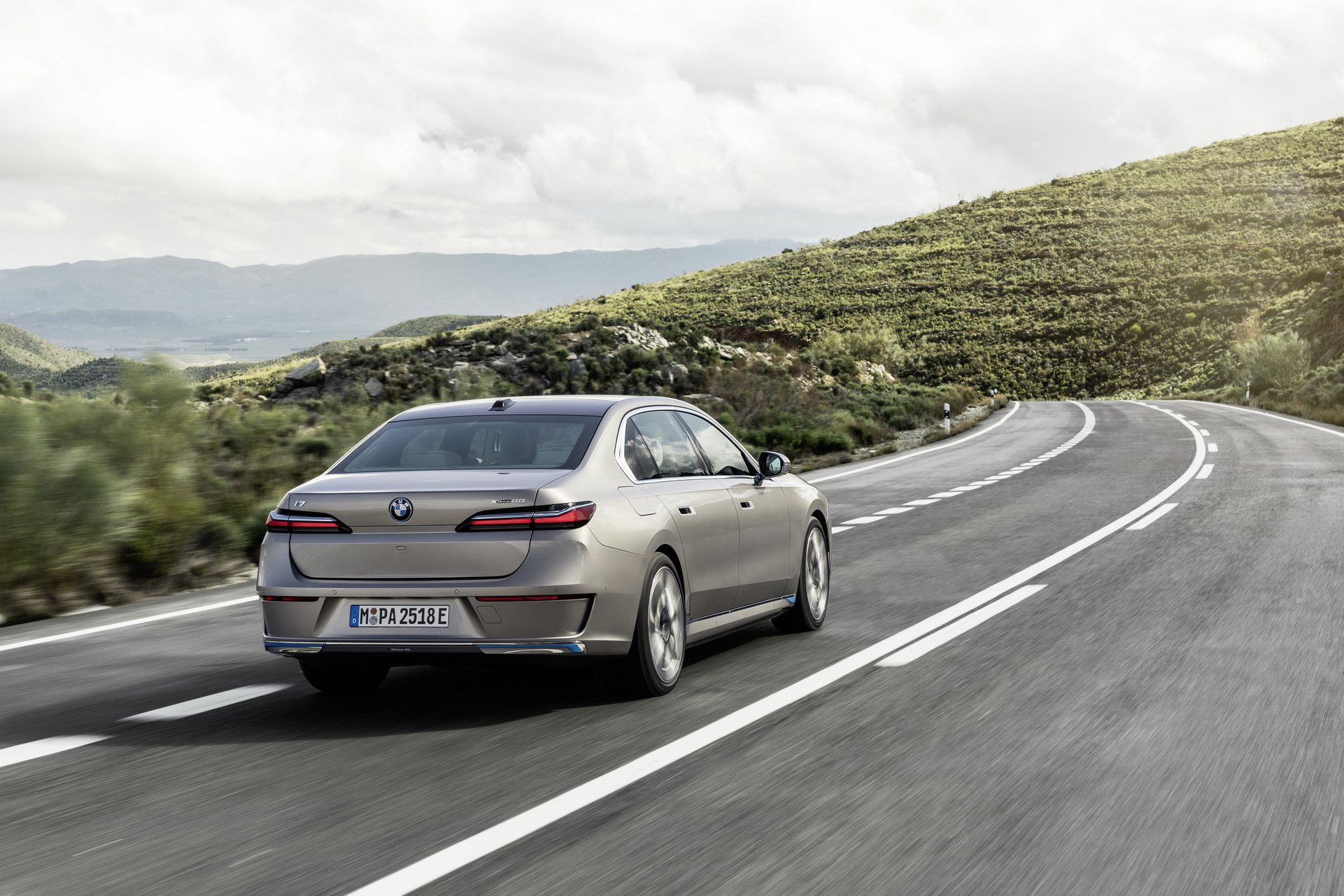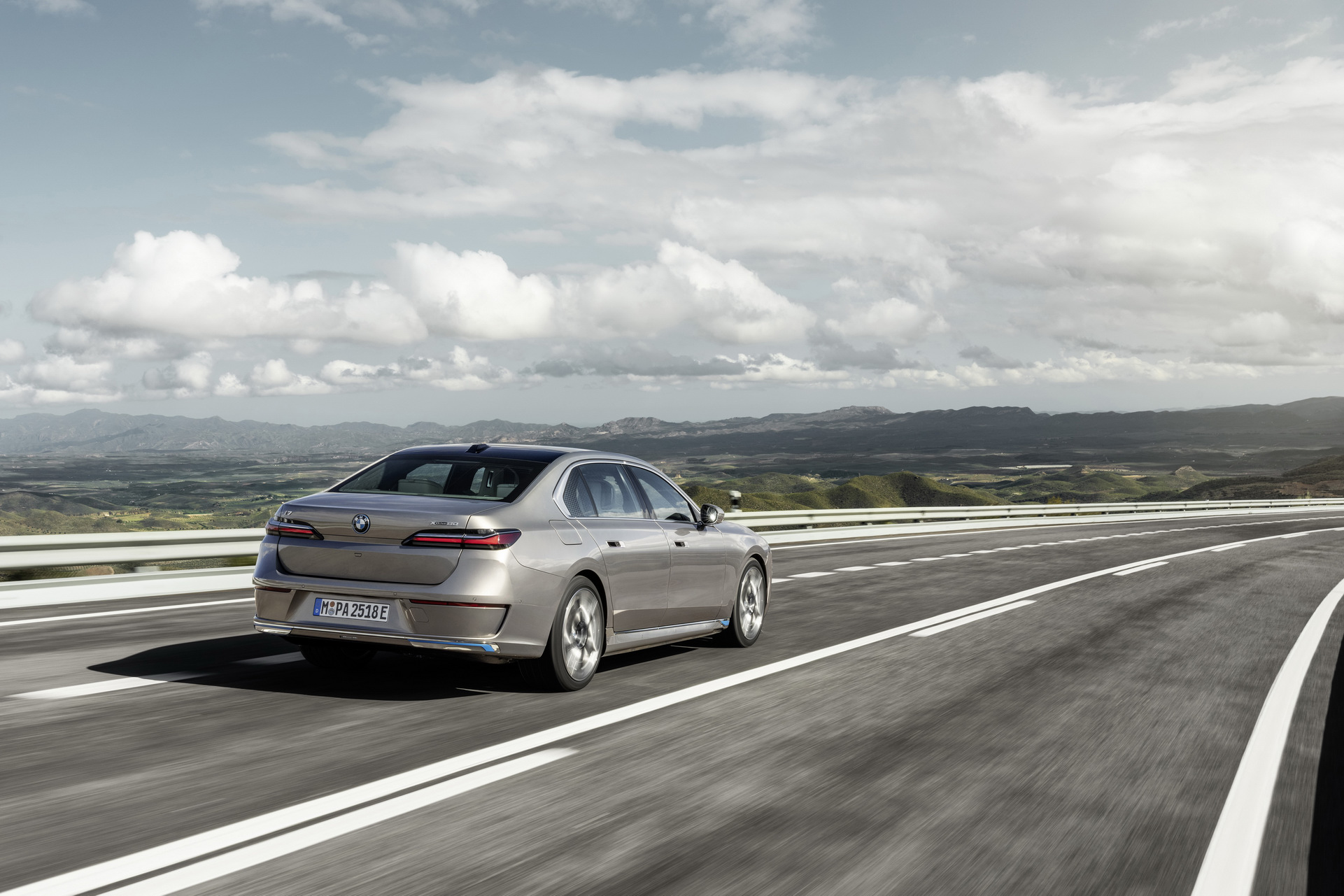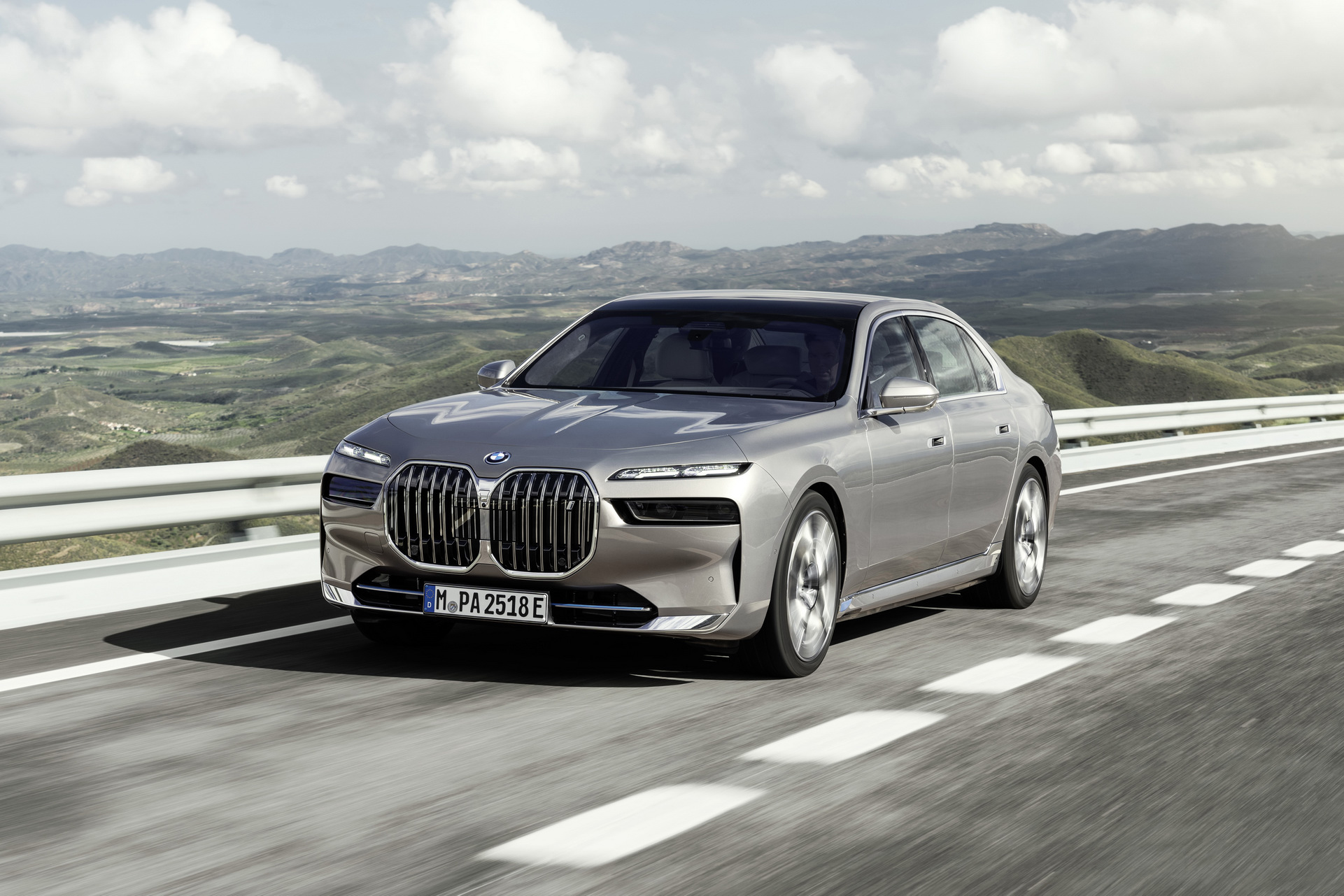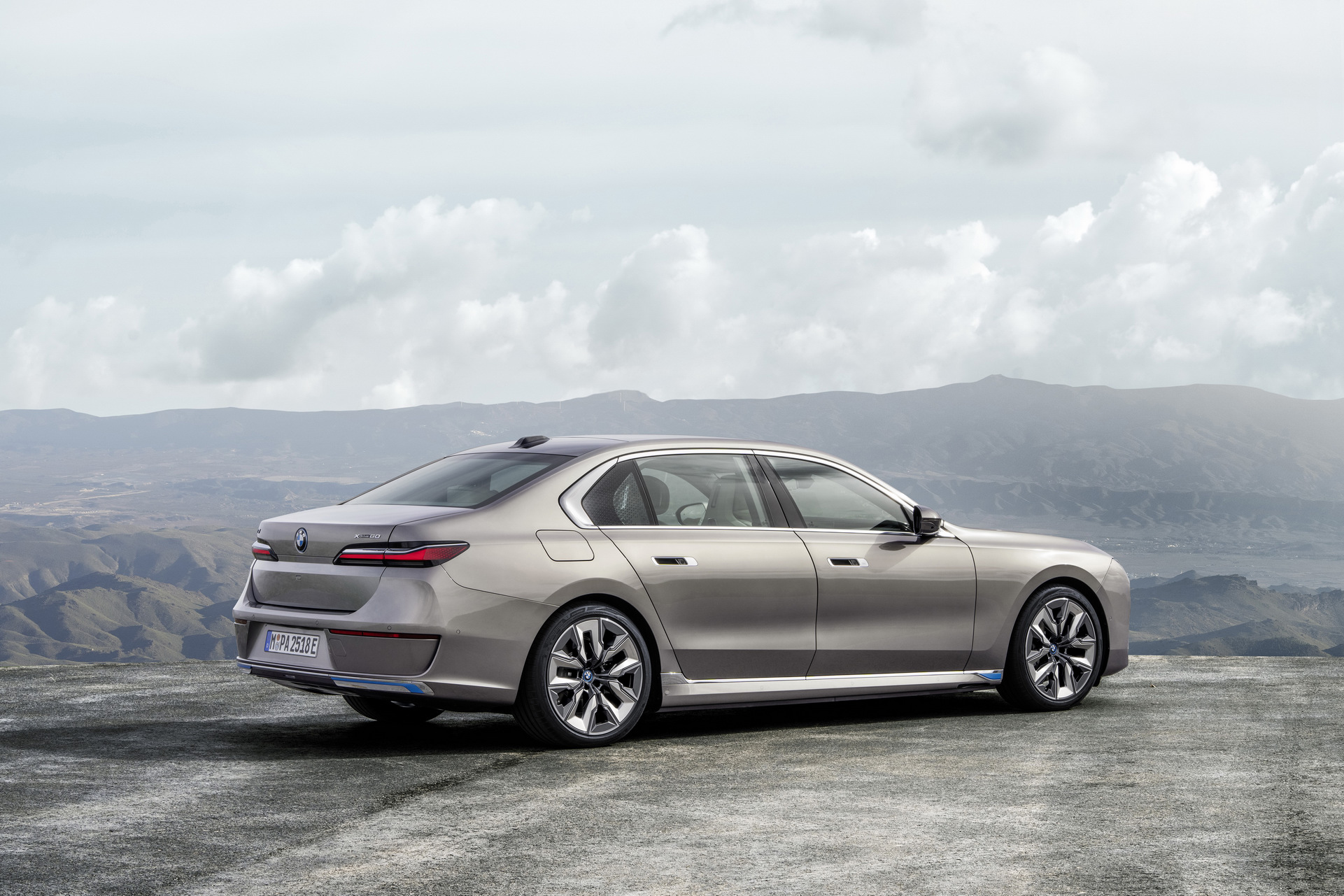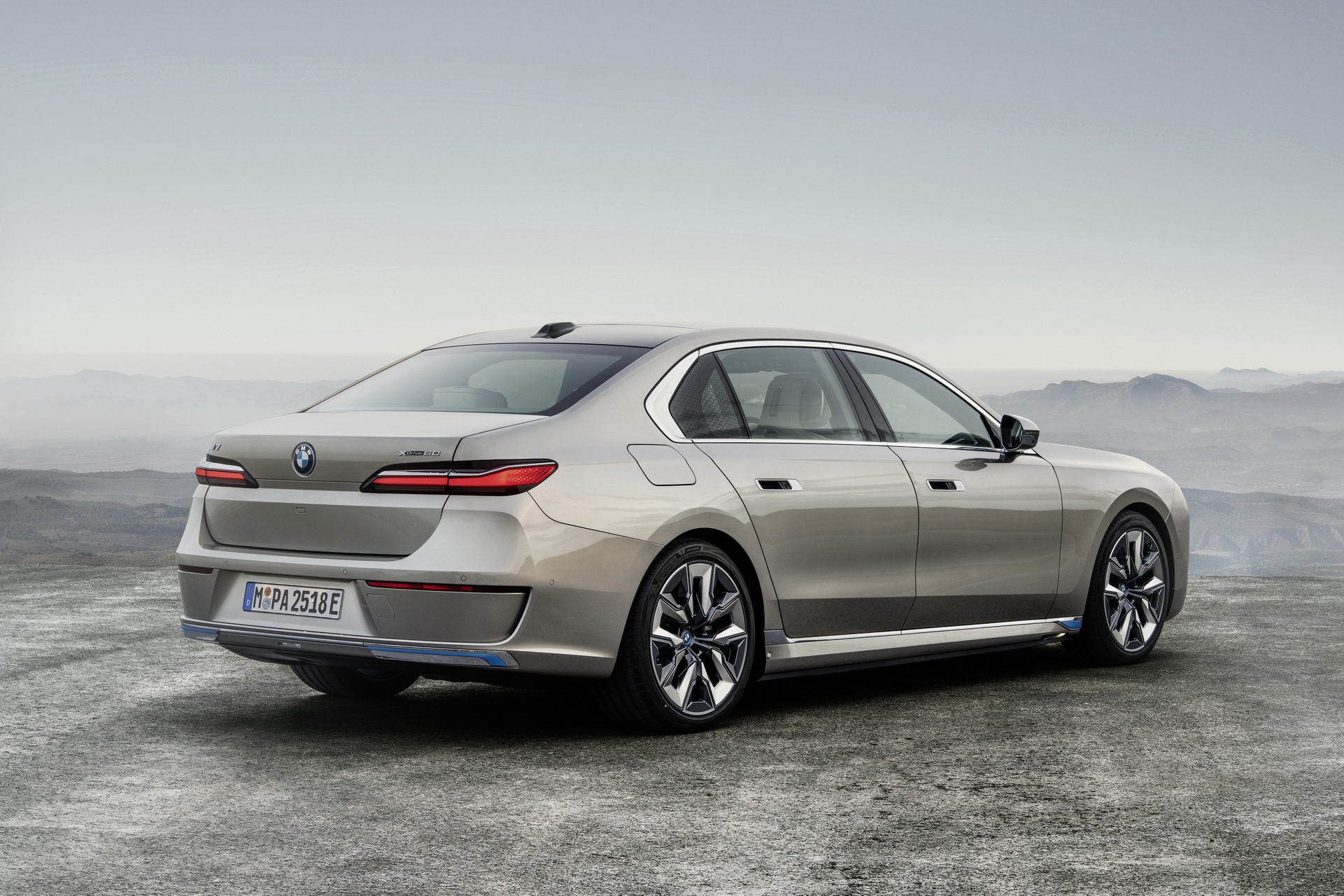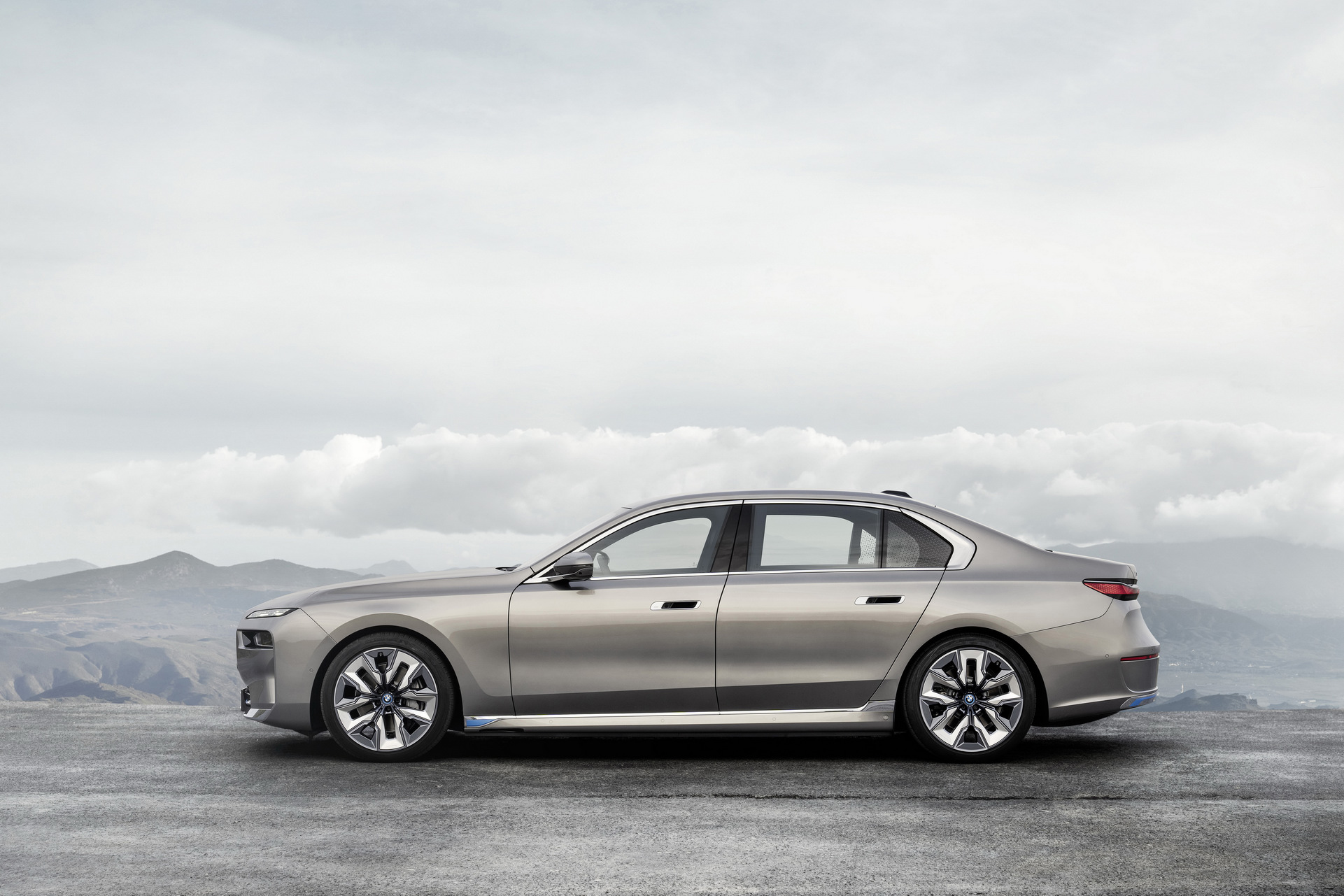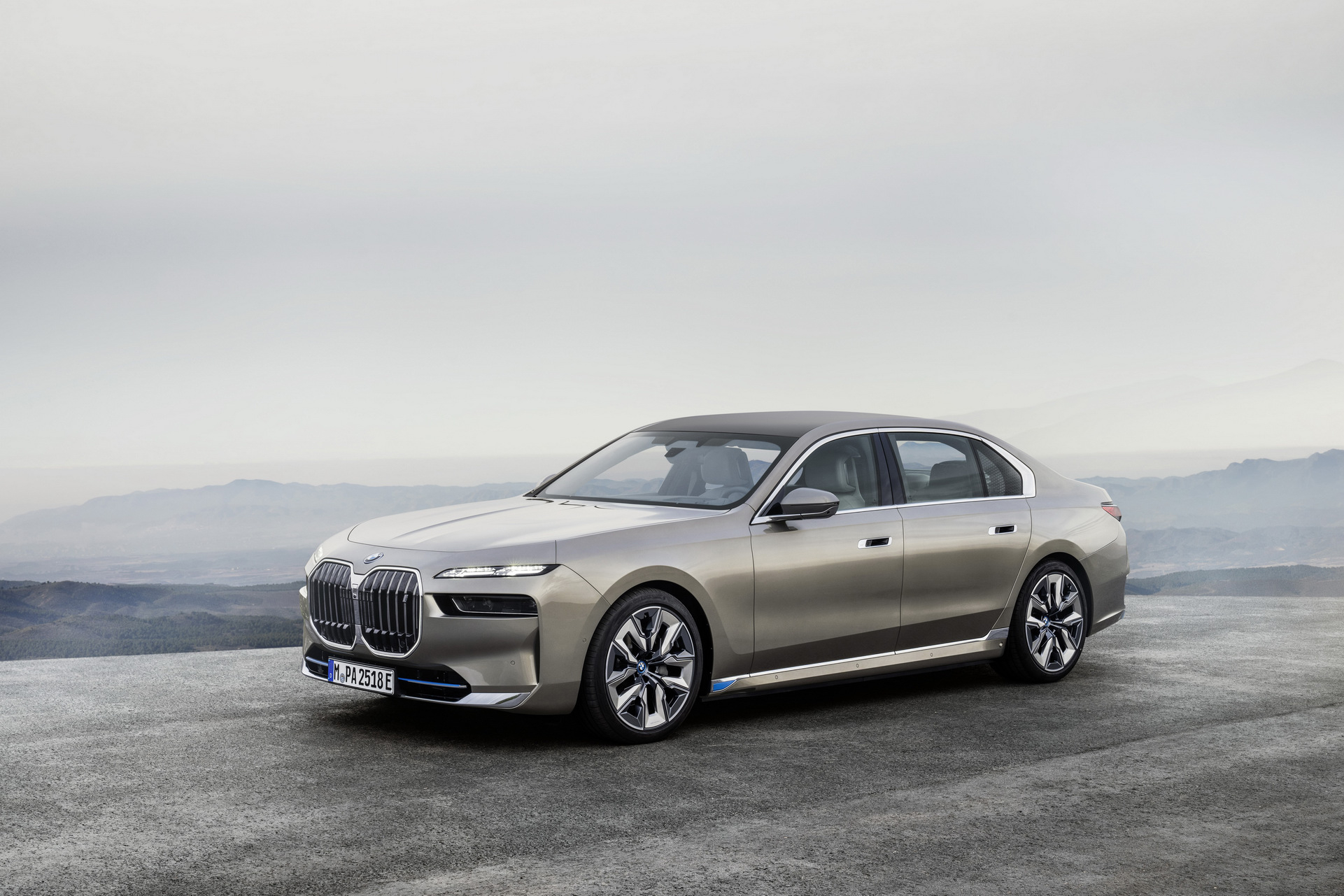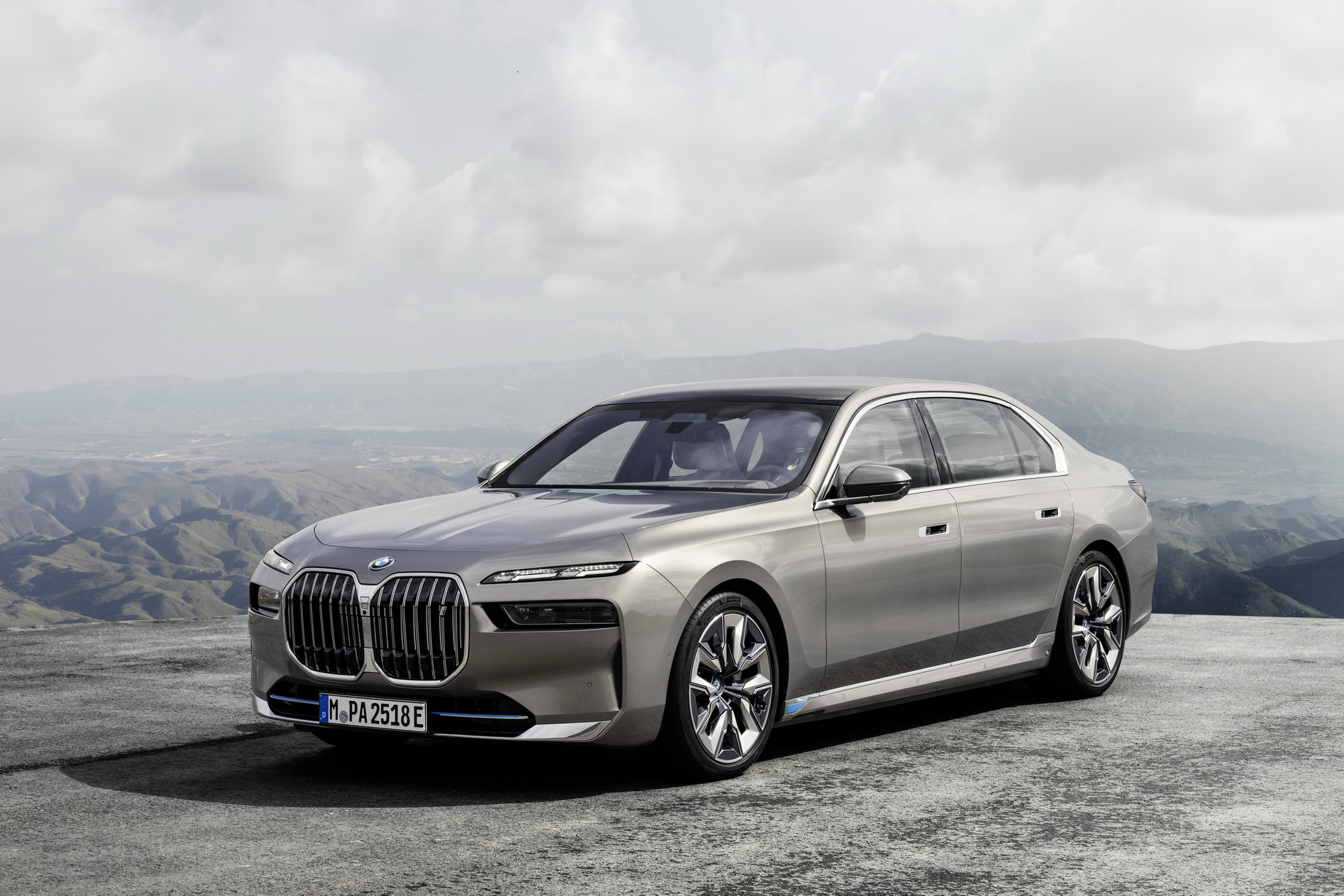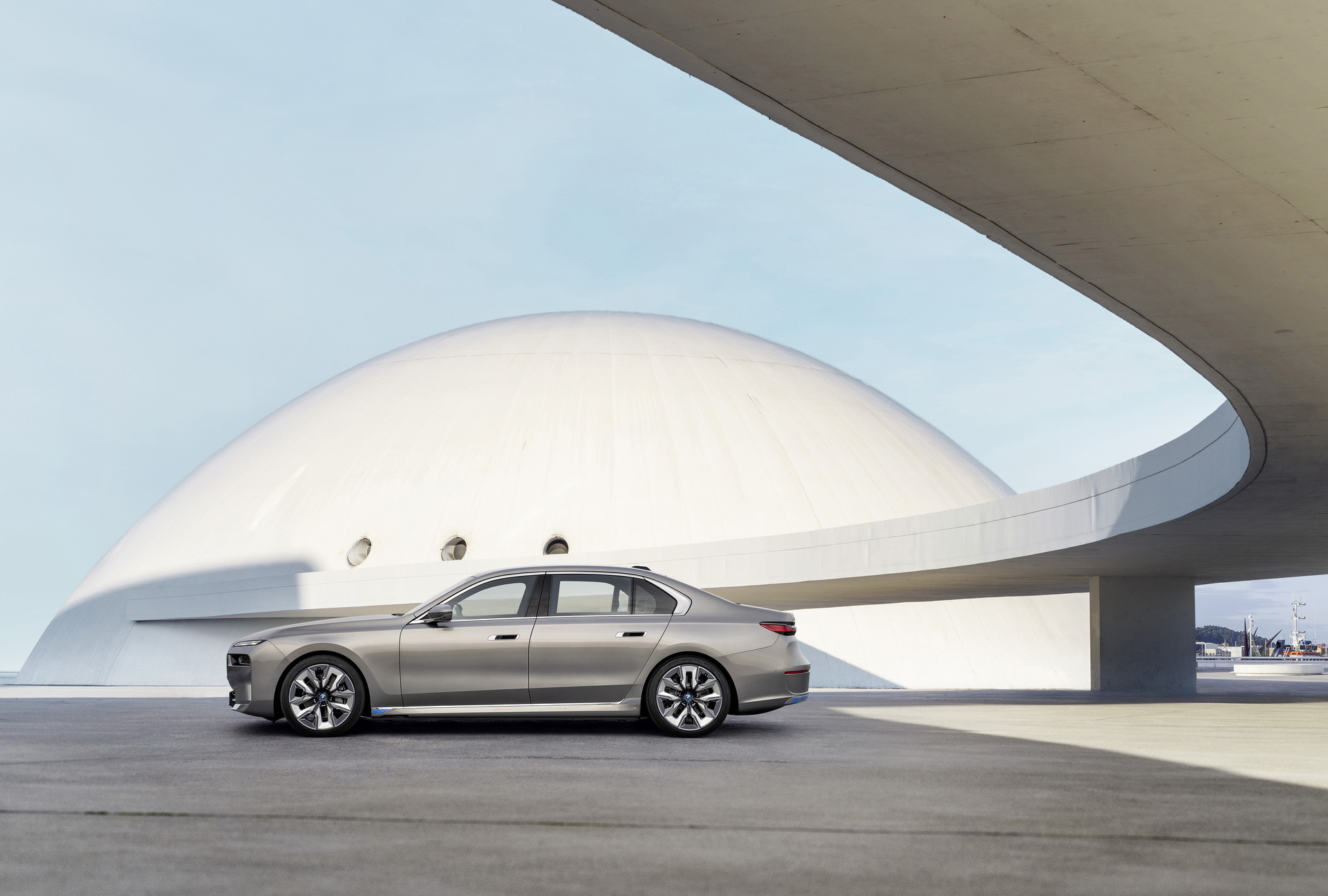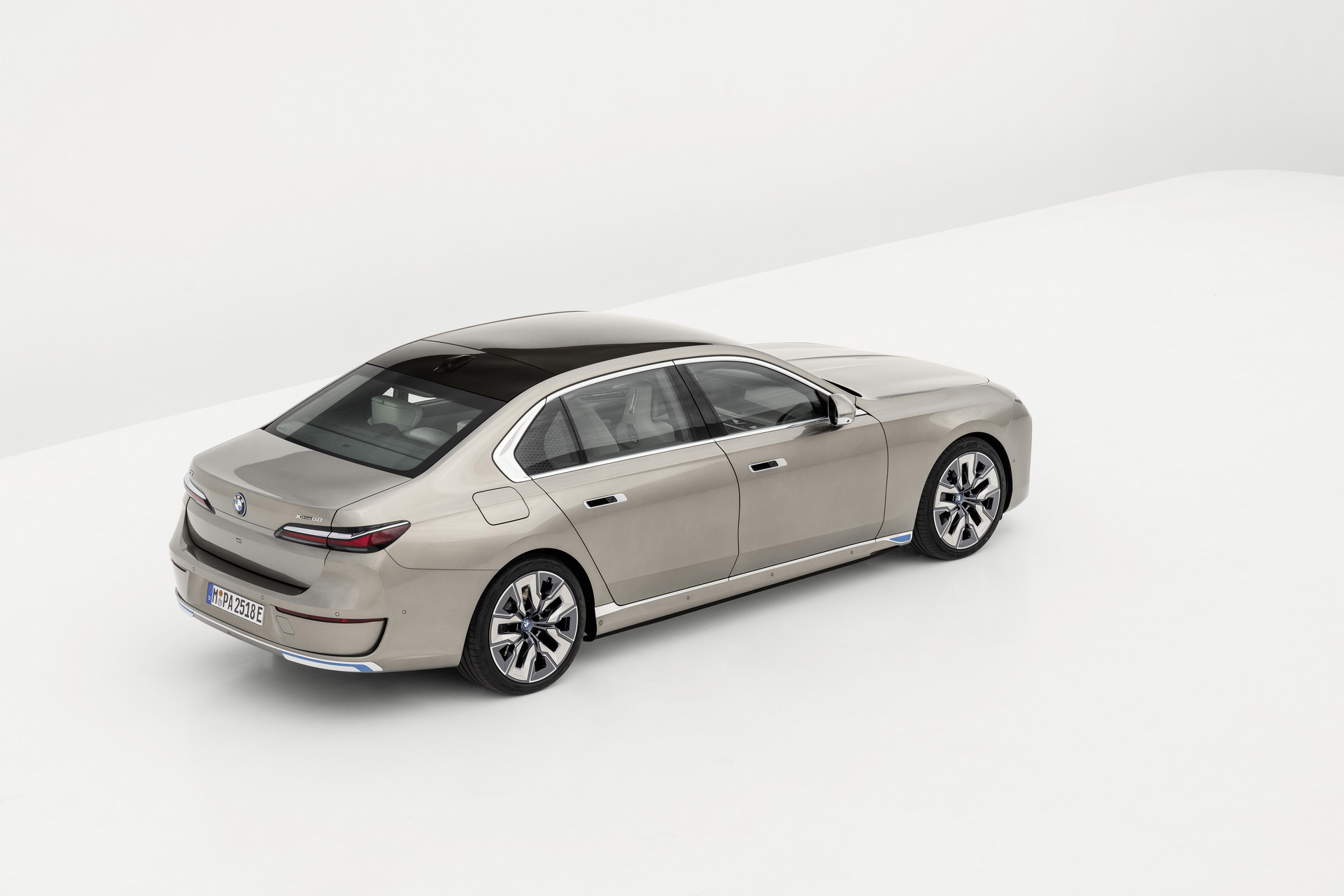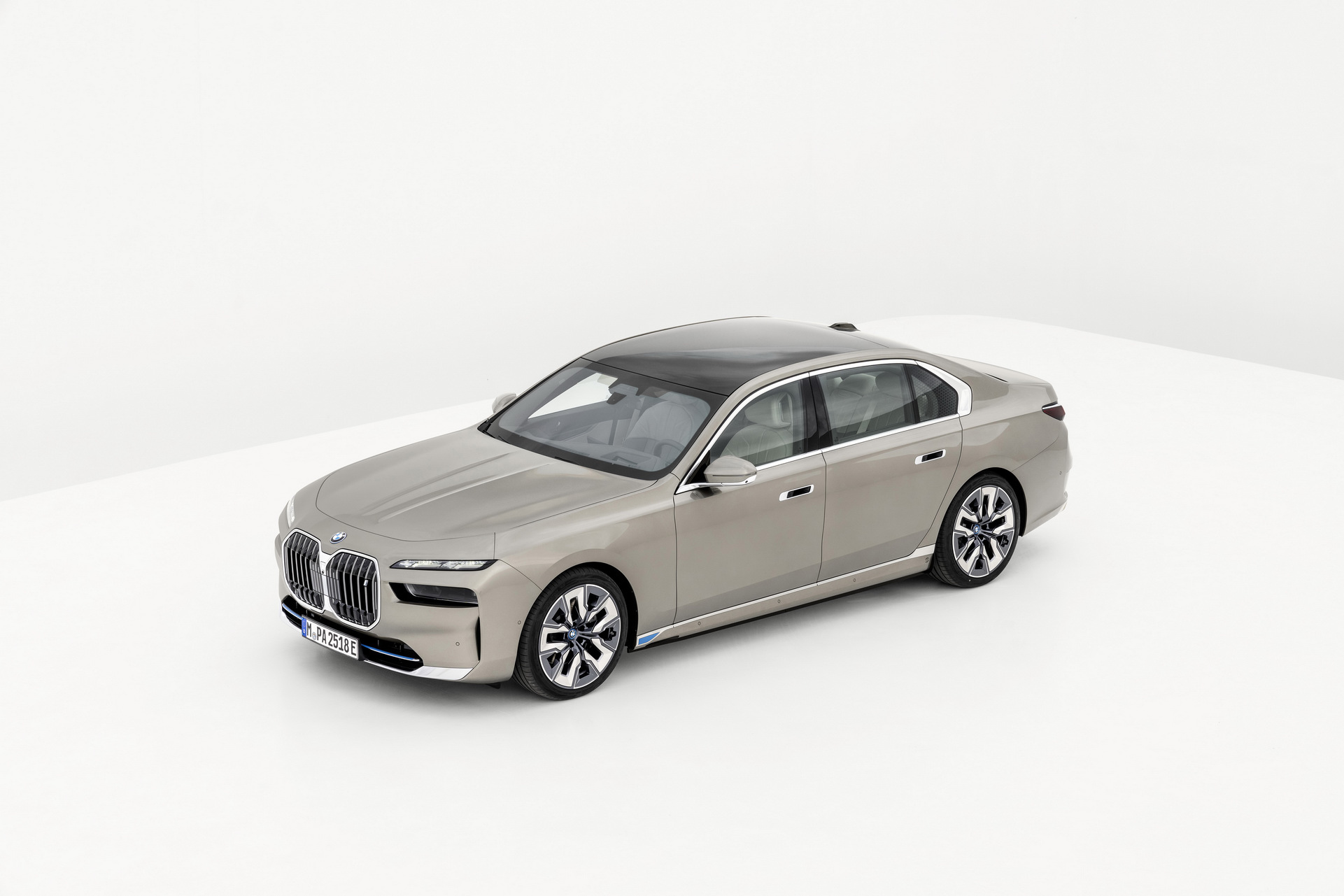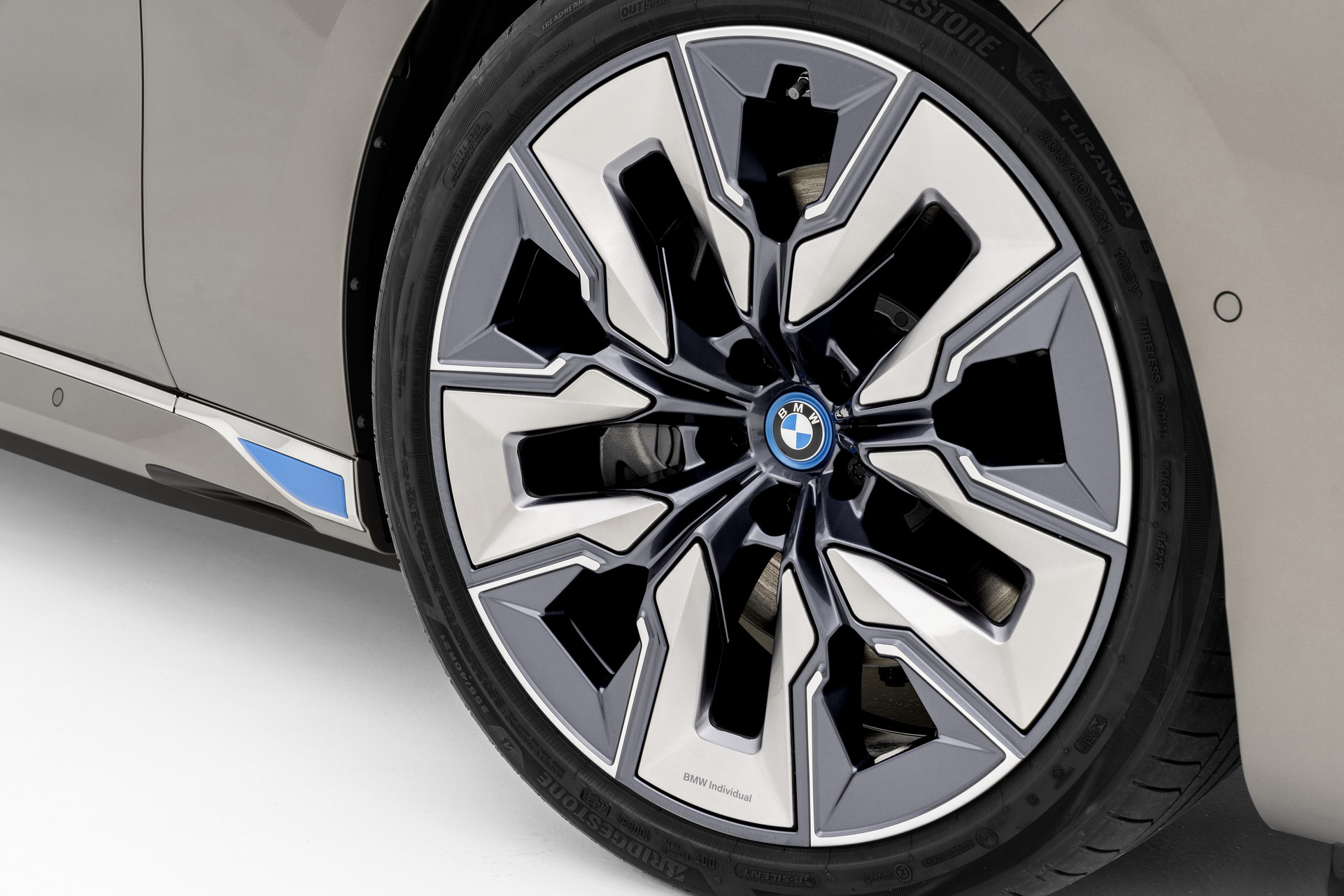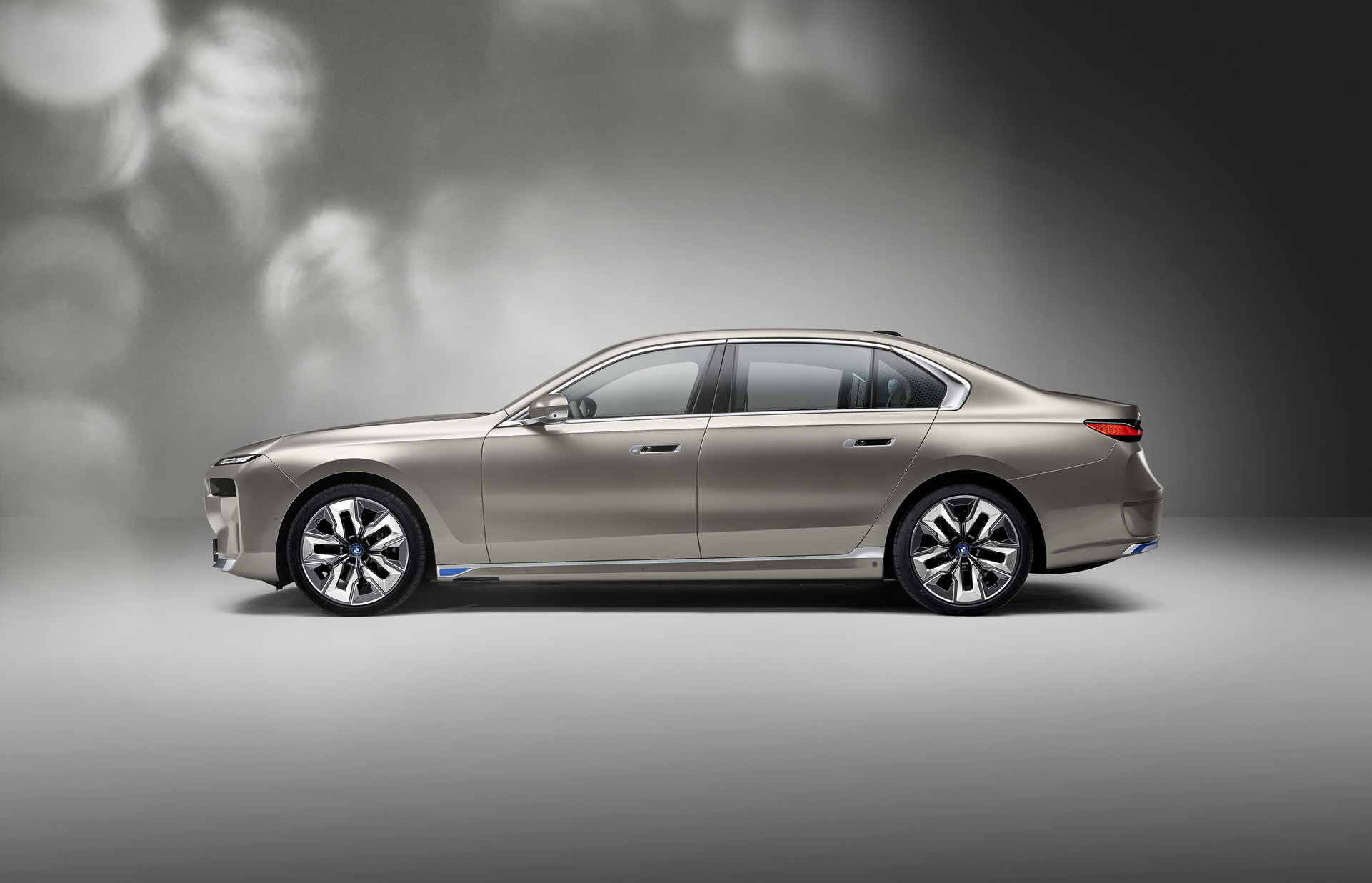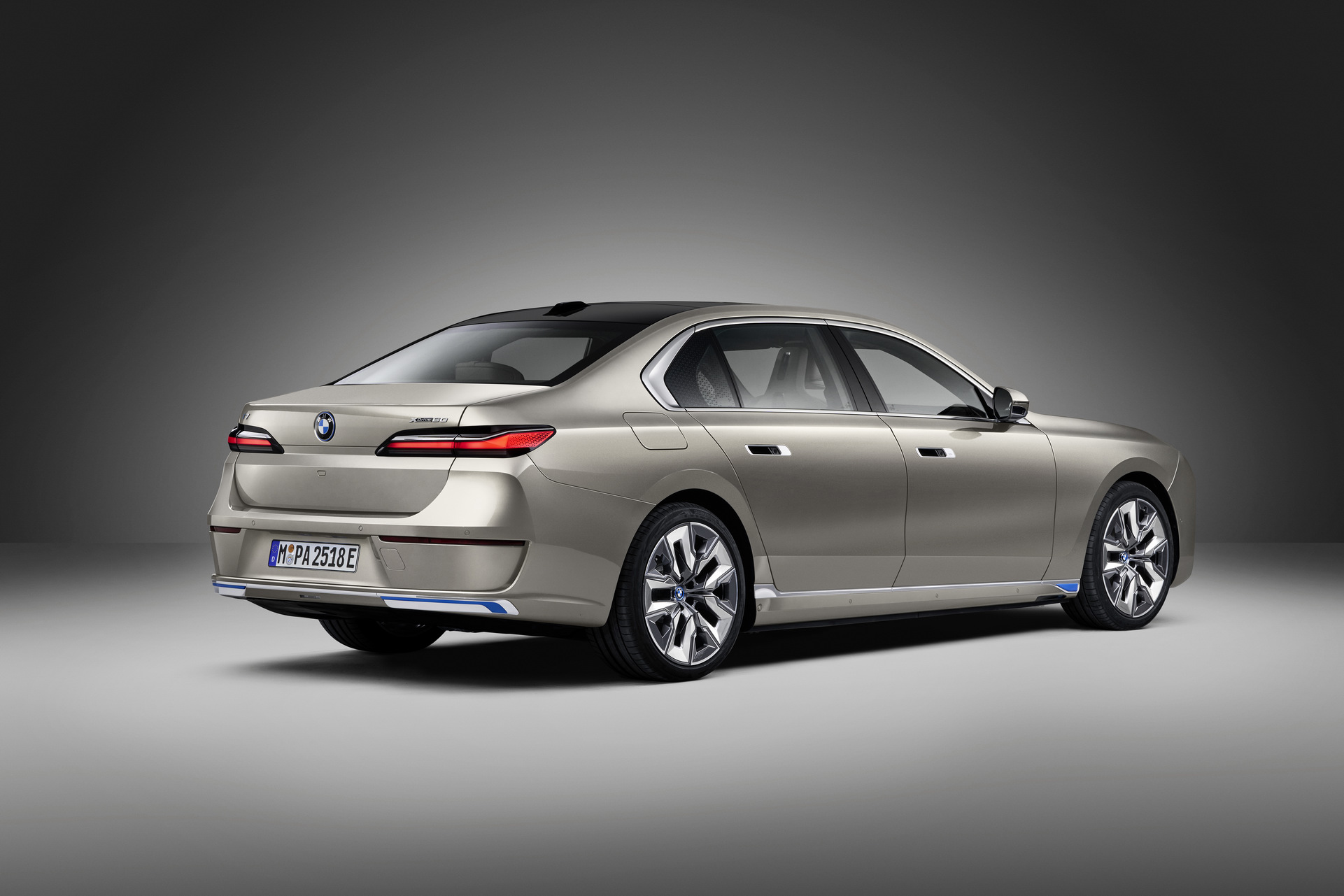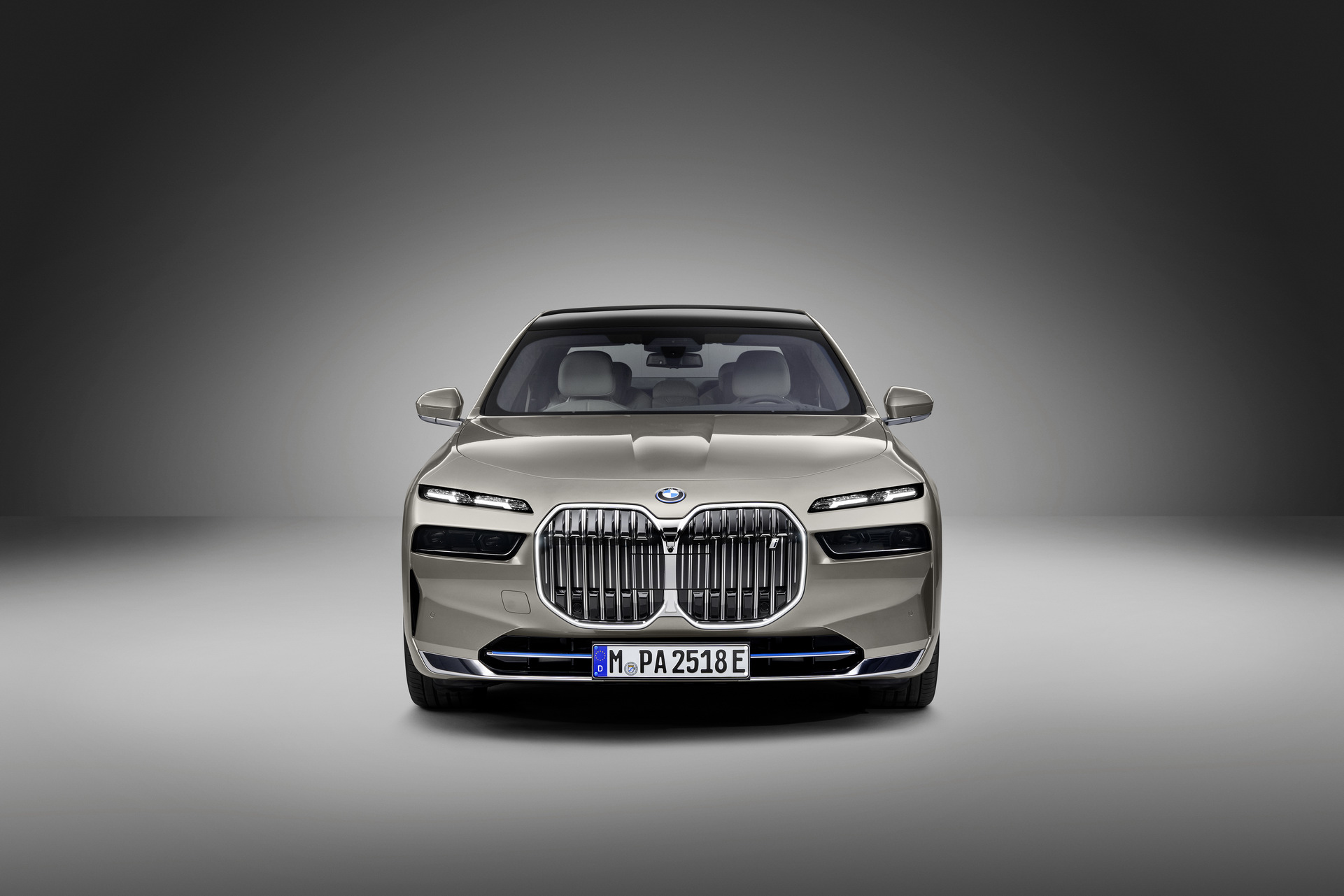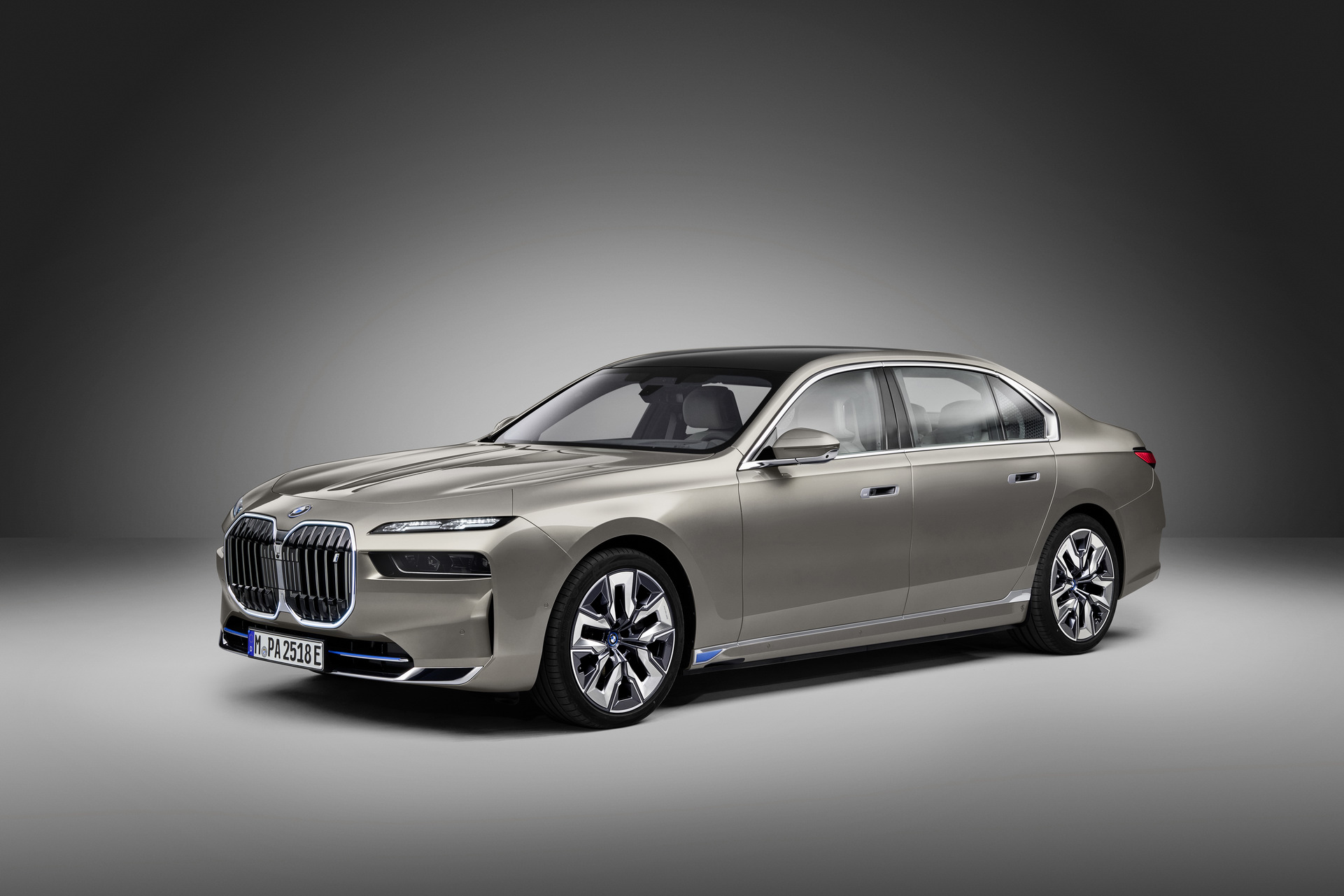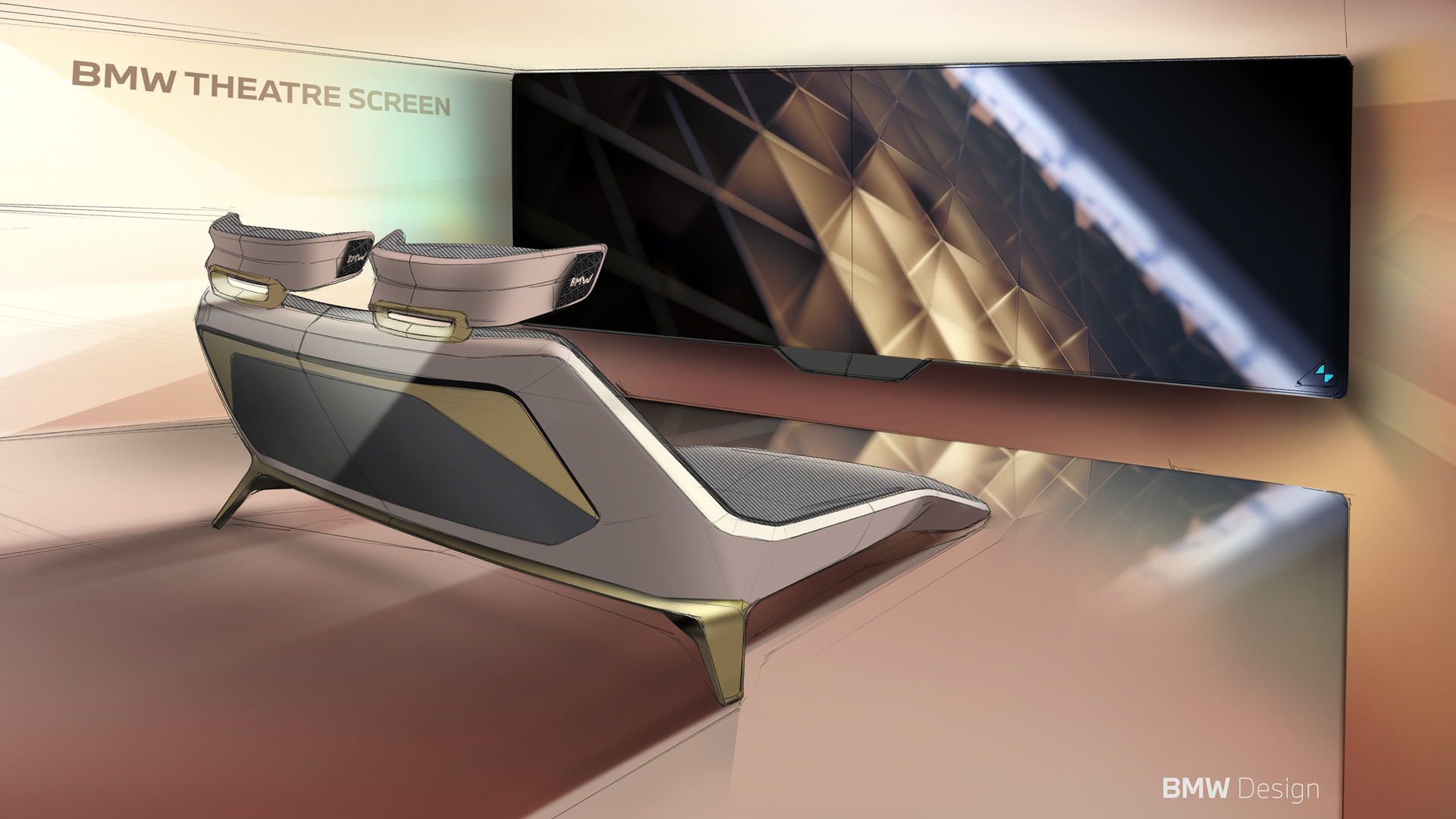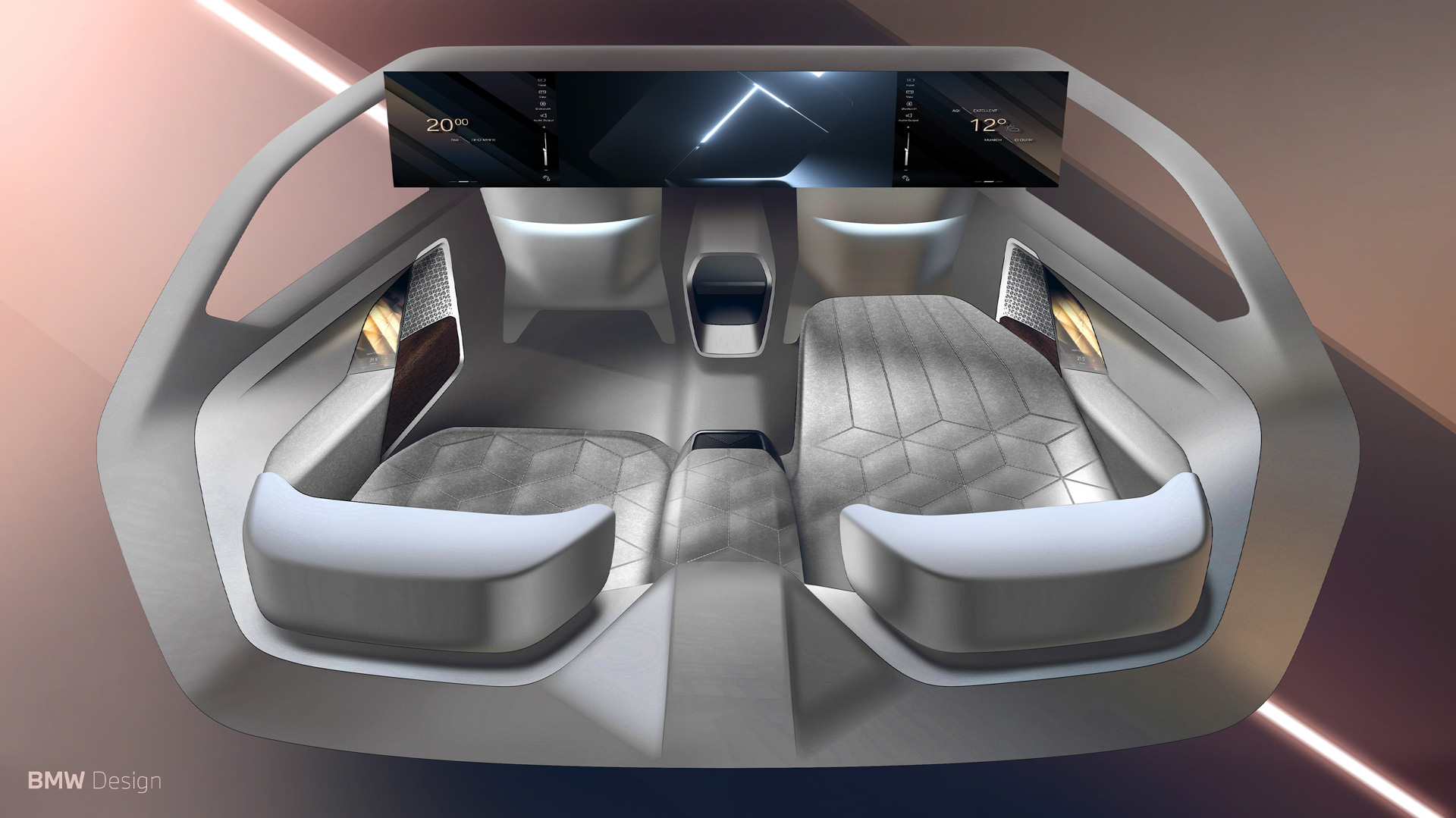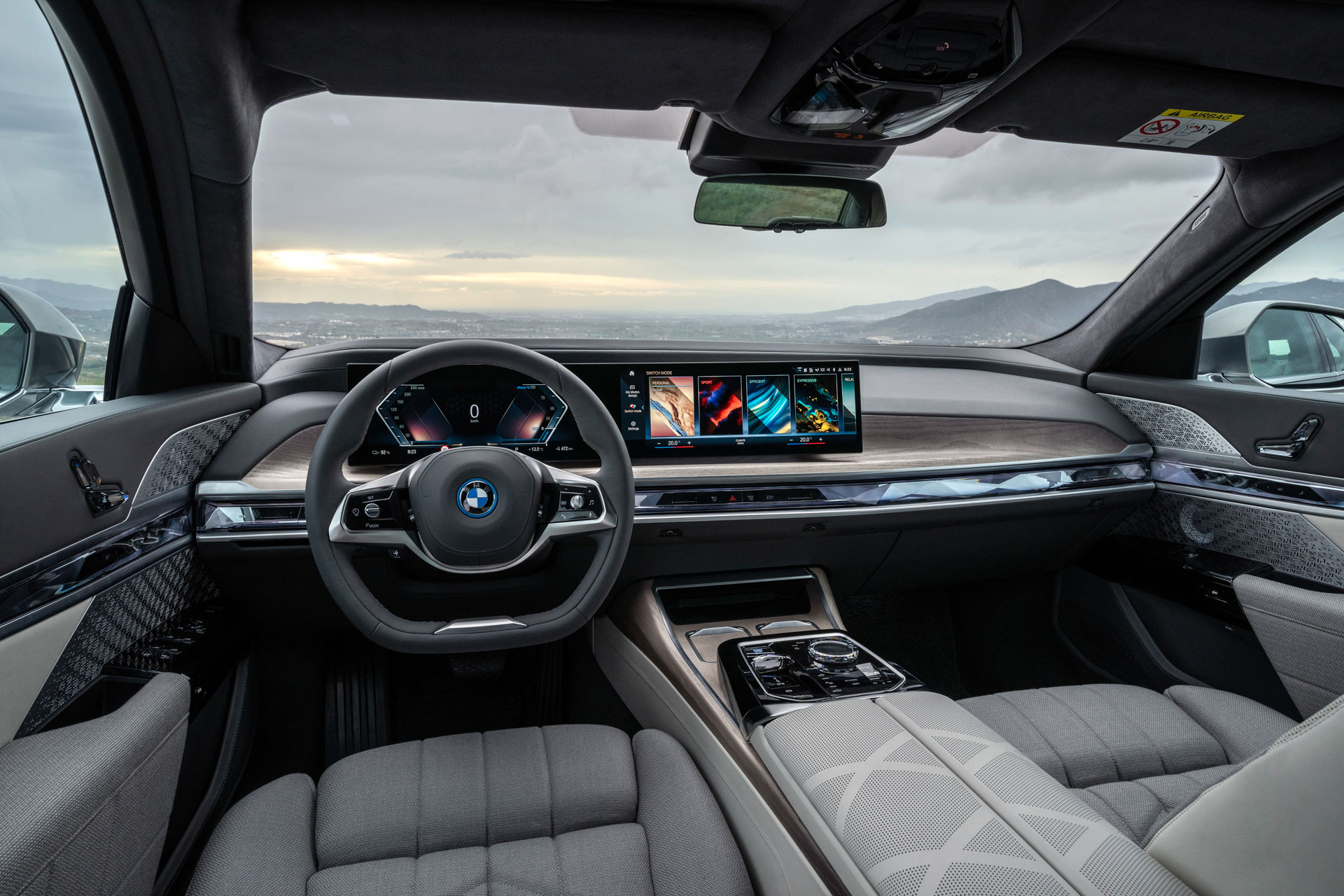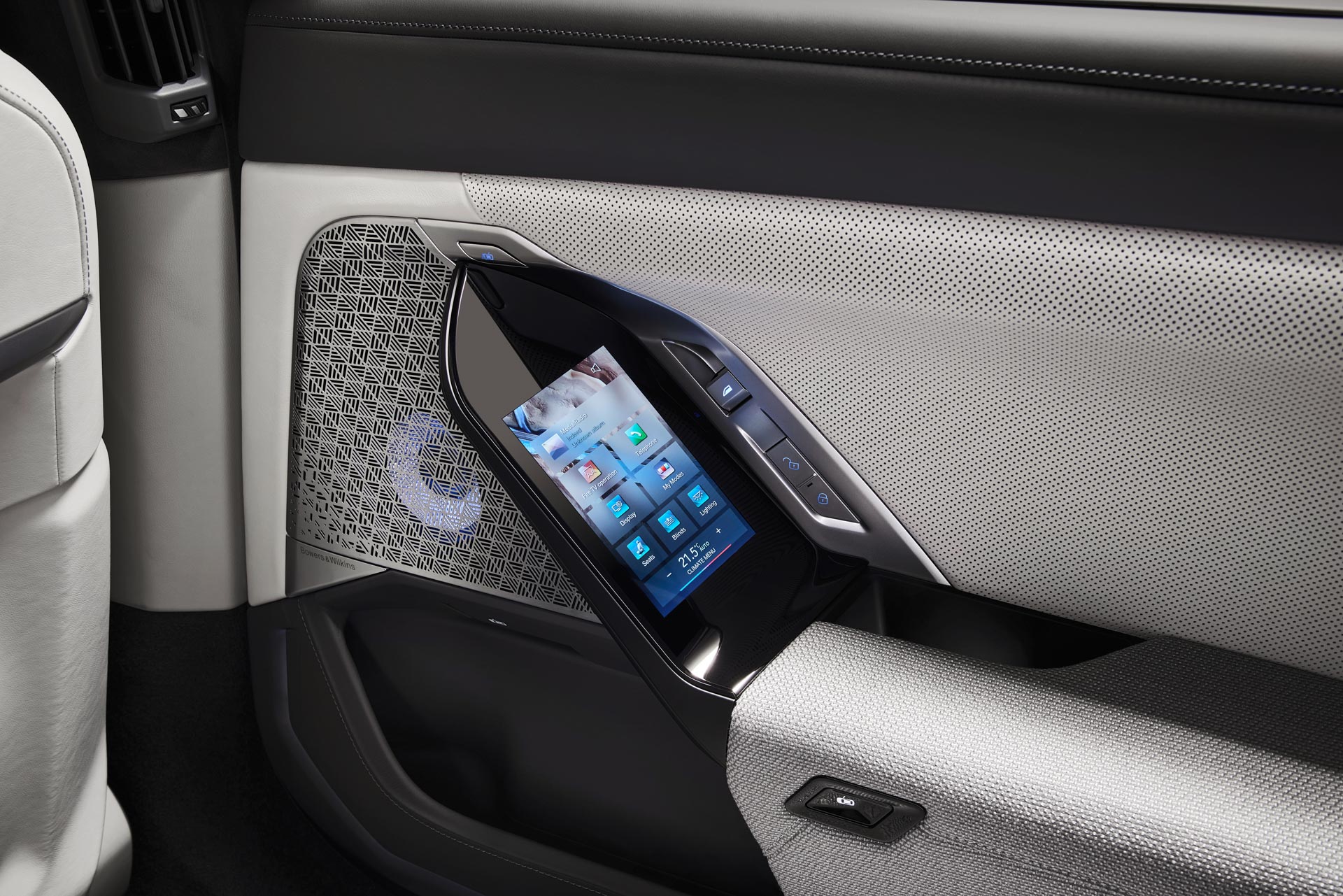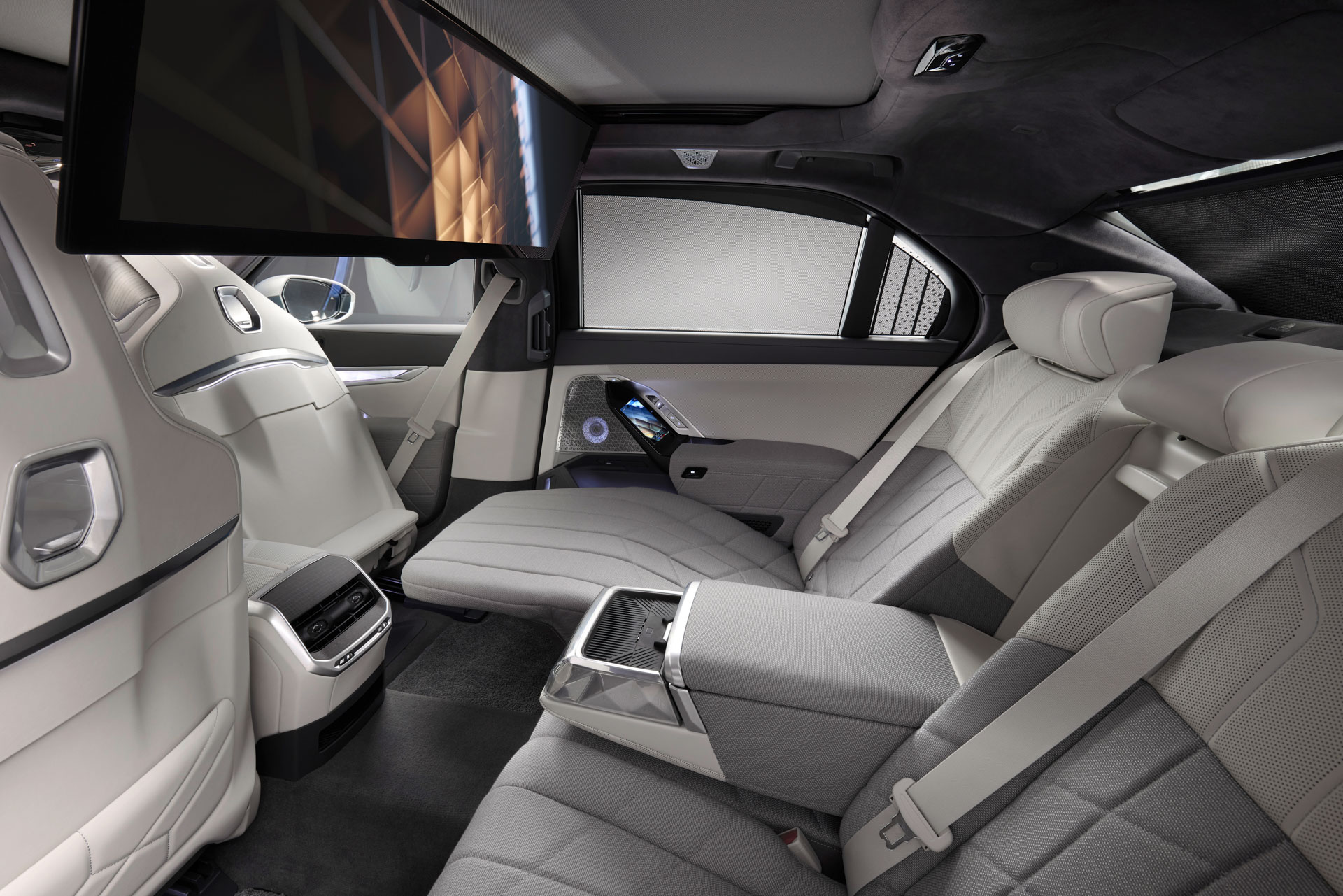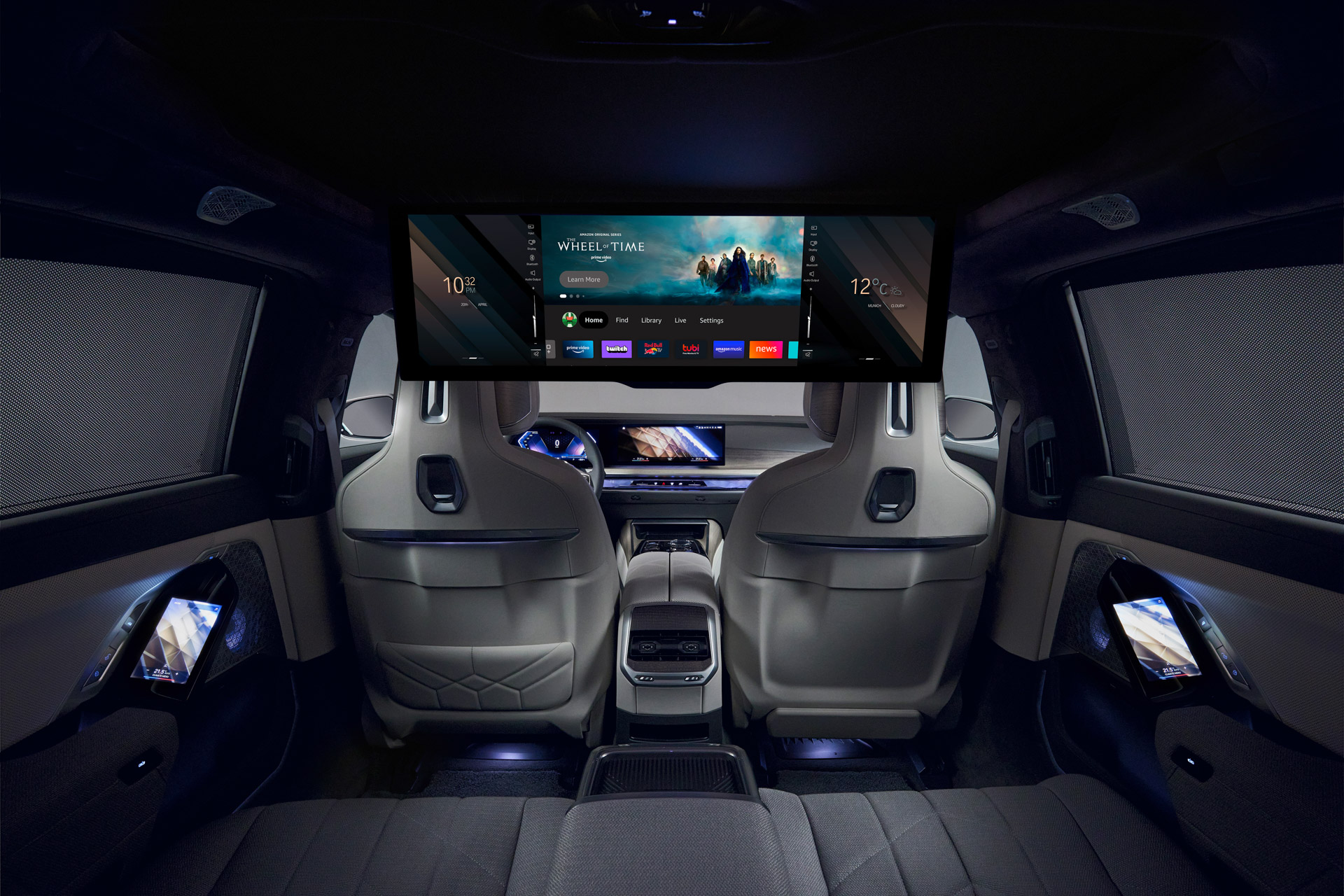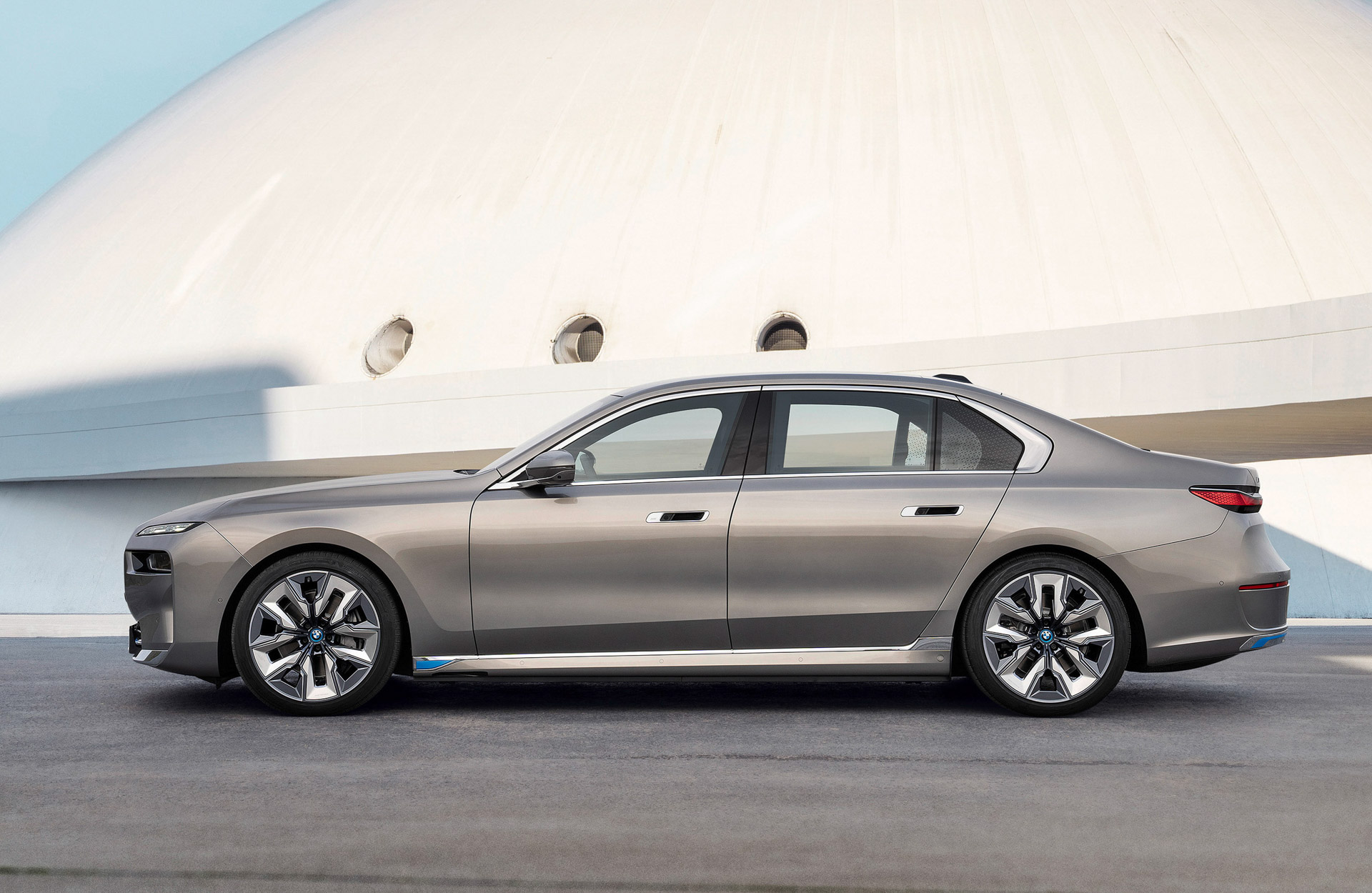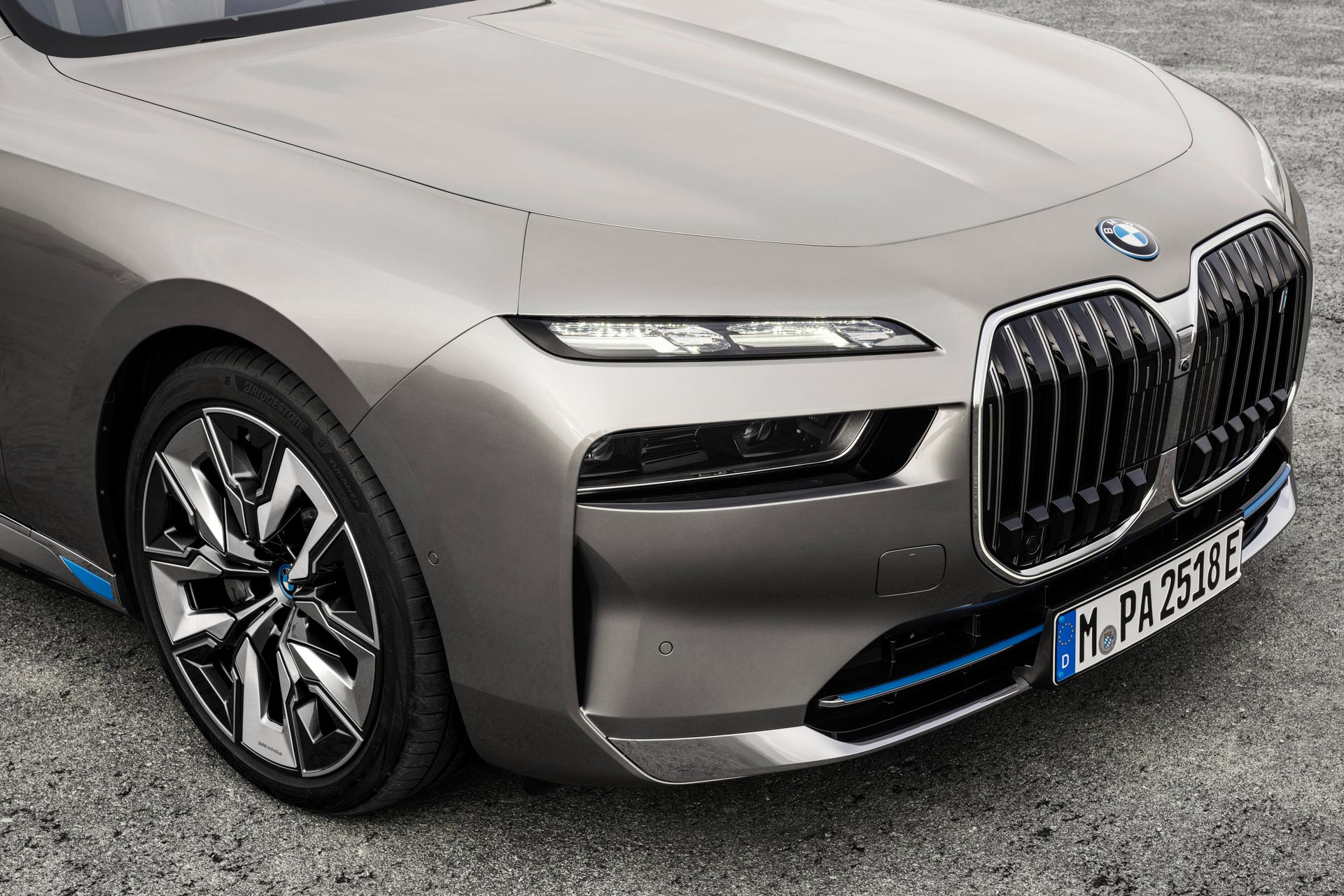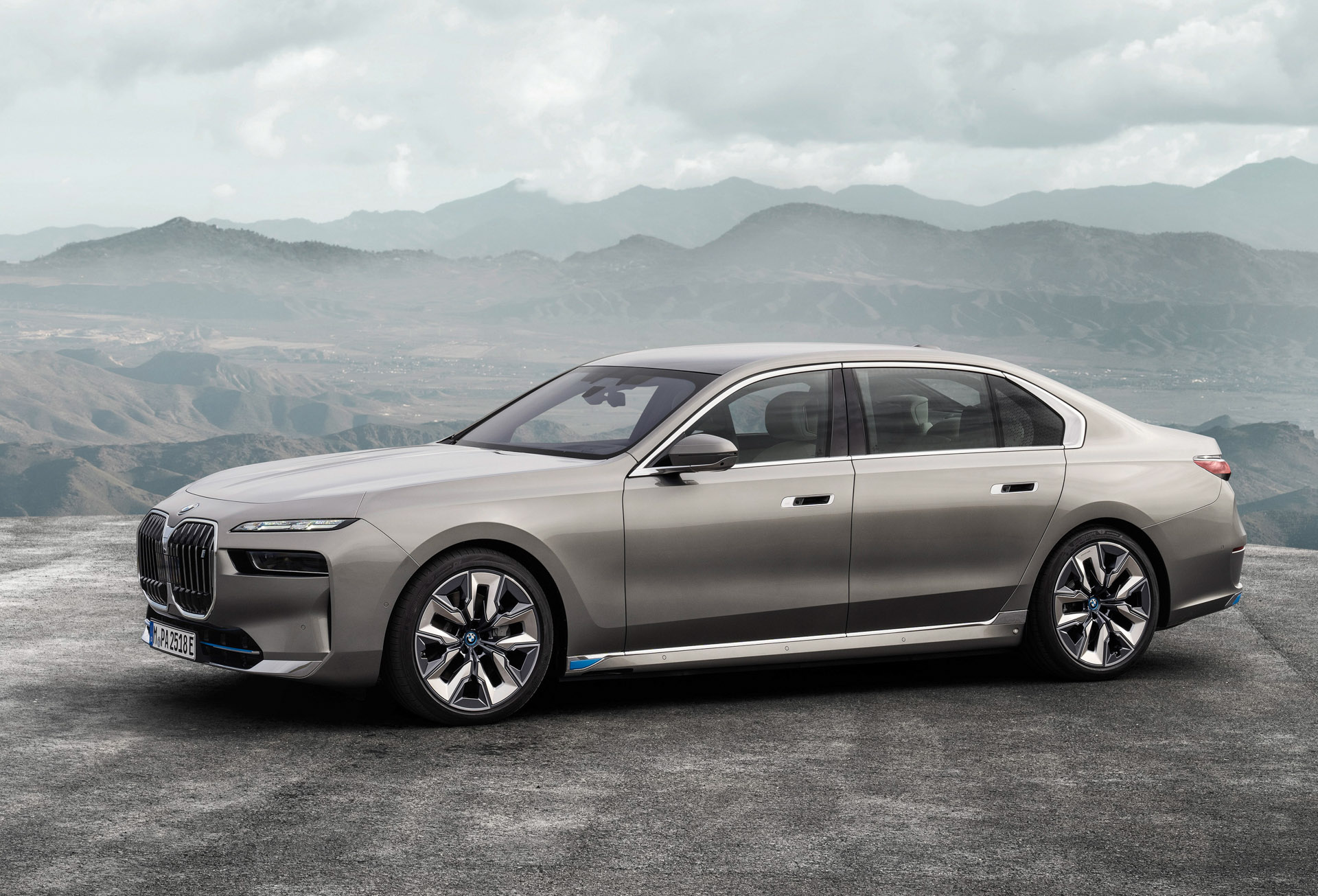BMW has revealed the all-new i7 xDrive60, the first all-electric entrant in the 7-Series lineup. It boasts an EPA-estimated range of 300 miles (483 km) and brings all the polarizing looks and sci-fi tech of the conventional 7-Series to those looking for an electric drivetrain.
Unlike Mercedes’ approach with the EQS and the standard S-Class series, the i7 is integrated into the 7-Series line-up — the i7 and 7-Series are visually similar and share the same body, dimensions, and cabin. The significant differences however are under the skin.
No Slouch, But Not The Fastest 7er
The drivetrain itself consists of two electric motors, making the 2023 i7 xDrive60 all-wheel drive. The motor powering the front axle makes 255 hp (259 PS / 193 kW) while the rear has a peak output of 308 hp (312 PS / 233 kW). Combined, it’s enough for 536 hp (544 PS / 405 kW), and 549 lb-ft (744 Nm) of torque.
The motors themselves ditch permanent magnets and are instead “electrically excited synchronous motors”. BMW claims that the new motors make no use of rare earth materials. The i7’s motor feature improved acoustics too, with model-specific mounting and noise encapsulation, making power delivery “virtually silent.”
The i7 xDrive60 can reach 60 mph (0-96 km/h) from a standstill in 4.5 seconds, 0.5 seconds quicker than the 3.0-liter inline-six powered 740i, which outputs 375 bhp (380 PS / 284 kW). However, the i7 is a smidge slower to 60 mph (96 km/h) than the V8-powered 760i xDrive. Interestingly both the i7 and 760i share the same quoted output, at 536 hp (544 PS / 405 kW), although the ICE-powered car wins on the torque front, with 553 lb-ft (749 Nm) of peak torque – not without thanks to its 48-volt mild-hybrid system.
The new i7 develops more power than the bi-motor Mercedes EQS 580, which puts down 516 hp (523 PS / 390 kW). However, the Mercedes offers a chunk more torque, with 630 lb-ft (854 Nm) over the i7’s 549 lb-ft (744 Nm). The electric Merc is quicker to 60 mph (96 km/h) too, but not by much, setting the sprint at 4.3 seconds. However, whereas the EQS is limited to a top speed of 130 mph (208 km/h), the i7 can stretch its legs up to 149 mph (240 km/h).
Battery, Range, And Charging
The i7 boasts a battery capacity of 101.7 kWh of usable energy. BMW says that the luxury sedan’s range is an EPA-estimated 300 miles (483 km), which puts it behind rivals such as the Mercedes EQS 580 (340 miles / 547 km) and the Tesla Model S Plaid (348 miles / 557 km).
The i7 can fast charge up to a rate of 195 kW, with BMW claiming it can add as much as 80 miles (128 km) of range in just 10 minutes. These fast charging rates are still slower than those offered by the Porsche Taycan, which can deliver energy at a max charge rate of 350 kW. But BMW is making an effort to entice customers with other tech benefits.
For instance, the adaptive recuperation that features on the BMW iX and i4 has been upgraded to monitor traffic lights and detect downhill sections. Regeneration is automatically increased when approaching an intersection, or power is disconnected from the motors downhill in order to freewheel.
BMW has also optimized charge software, using lessons learned from the i4 and iX. For starters, temperatures for DC fast charging are more precisely controlled, lengthening the overall battery life. While the i7 DC charges, the software alternates phases of full and partial cooling in an effort to reduce stress on the battery cells and shorten recharge times.
See Also: Could a 700+ HP i7 M70 Be On The Cards?
And, once the battery reaches a higher charge level, the charging rate is reduced gradually, instead of the steep drop that would have previously been the case. This gives a more rounded charge curve, again shortening recharge times.
BMW is also throwing in three years of free charging from Electrify America, while the i7’s navigation will calculate charging-optimized routes. Information such as estimated charge level upon arrival, the recommended charging time, and the target charge level for the onward journey is displayed.
Pre-Orders Open April 21, 2022
The 2023 i7 may not be the revolutionary offering in the EV space that some would have looked forward to, but its integrated placement in the 7-Series lineup aligns with the brand’s hesitancy to put all its eggs in one basket. It also gives those looking for a luxury sedan an alternative to the EQS, but we may have to wait until Audi’s A8 e-tron arrives before we start awarding any winners.
Pre-orders for the i7 will open on April 20, with first deliveries expected in Q4 of this year. The base i7 xDrive60 starts from $119,300 + $995 destination charge, making it the most expensive in the 2023 7-Series range.




